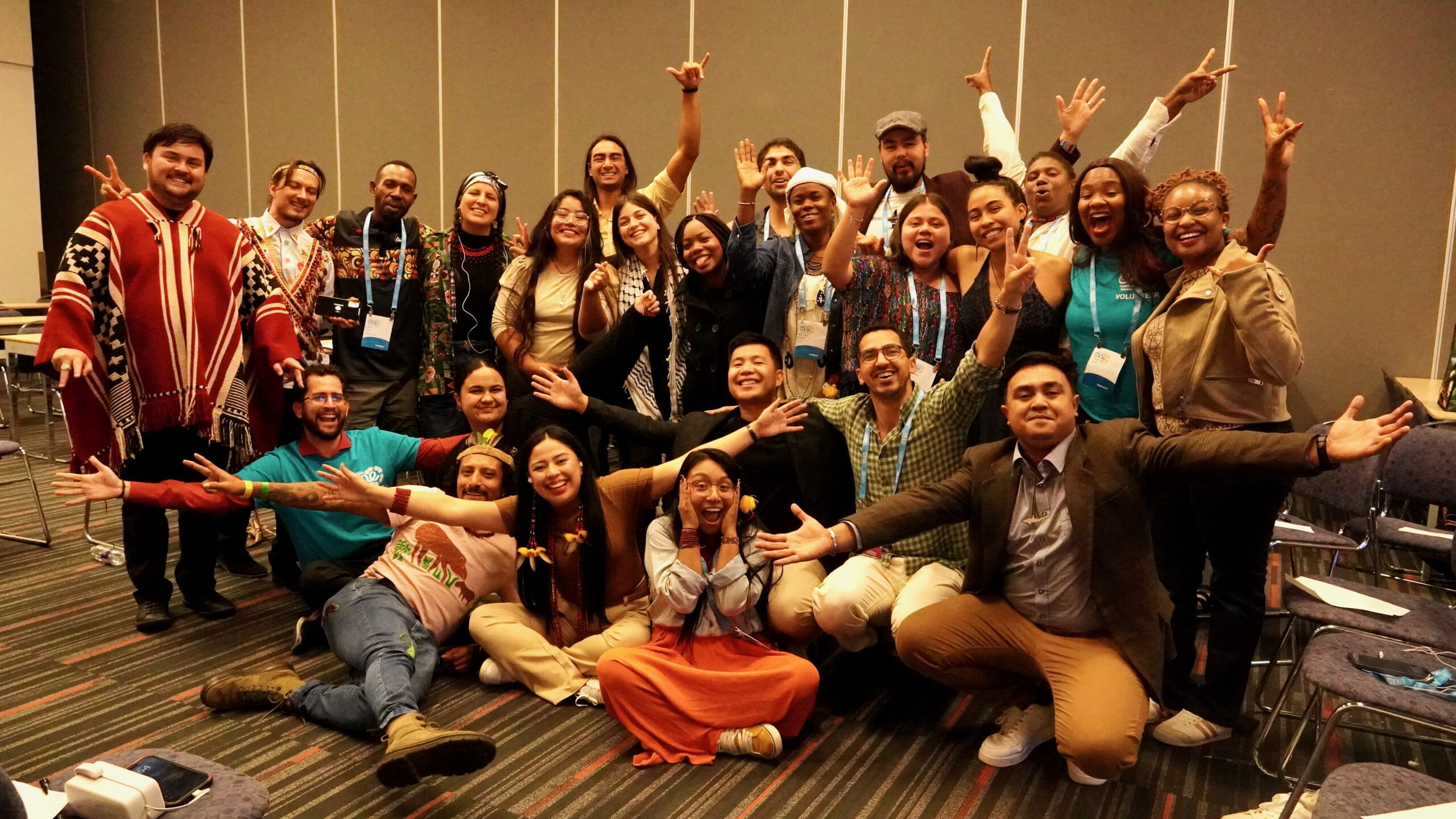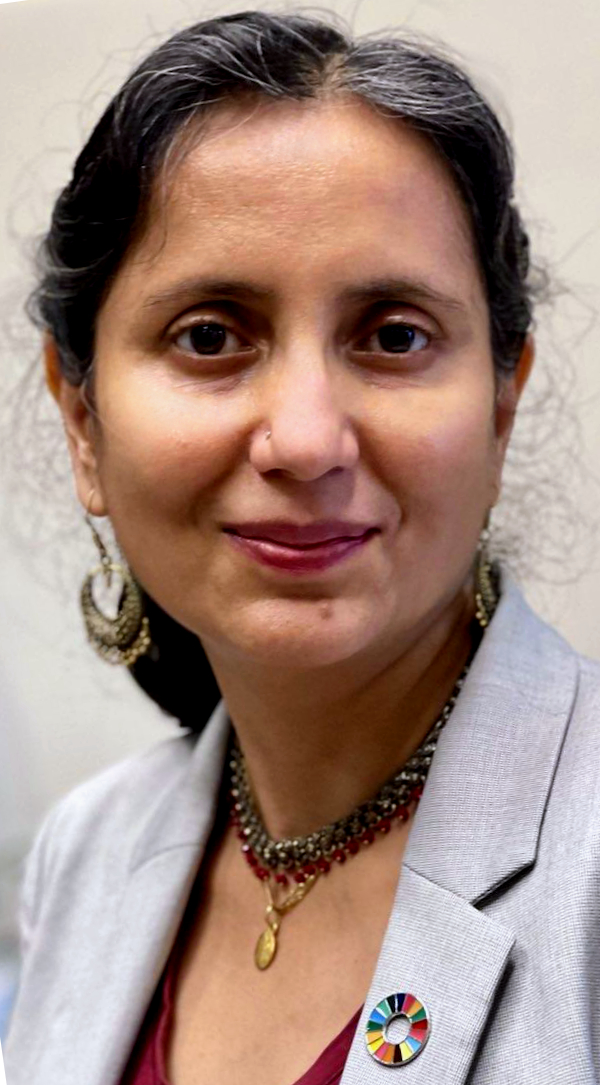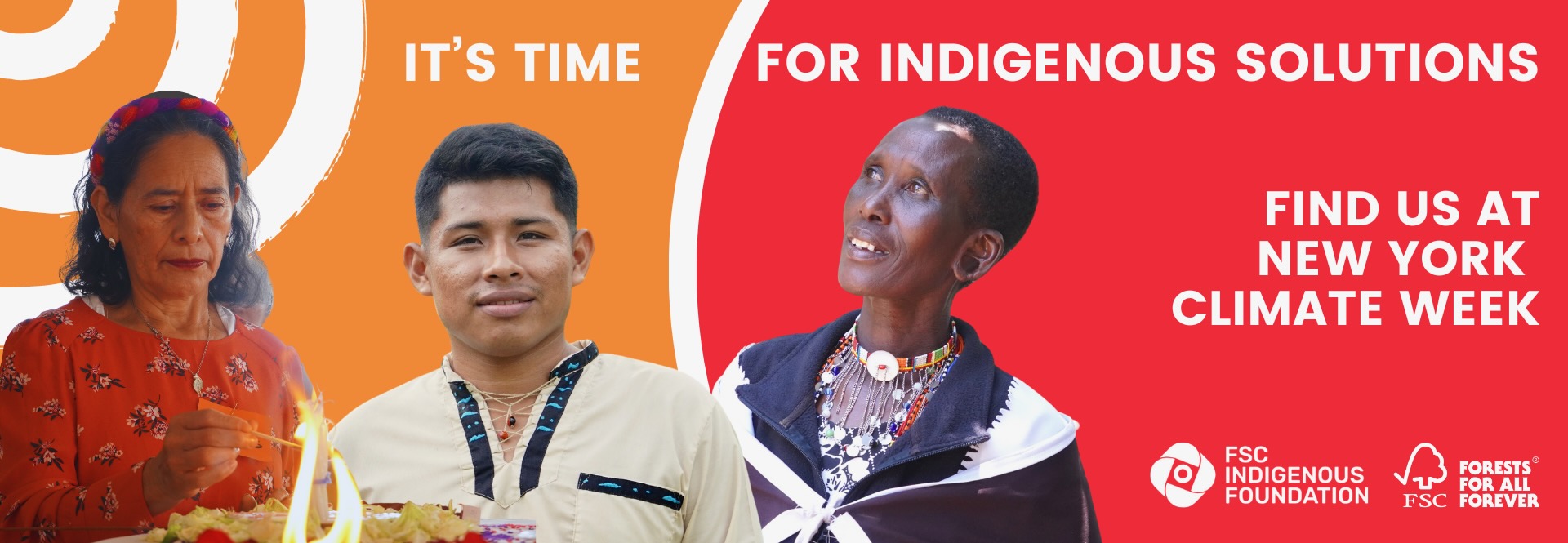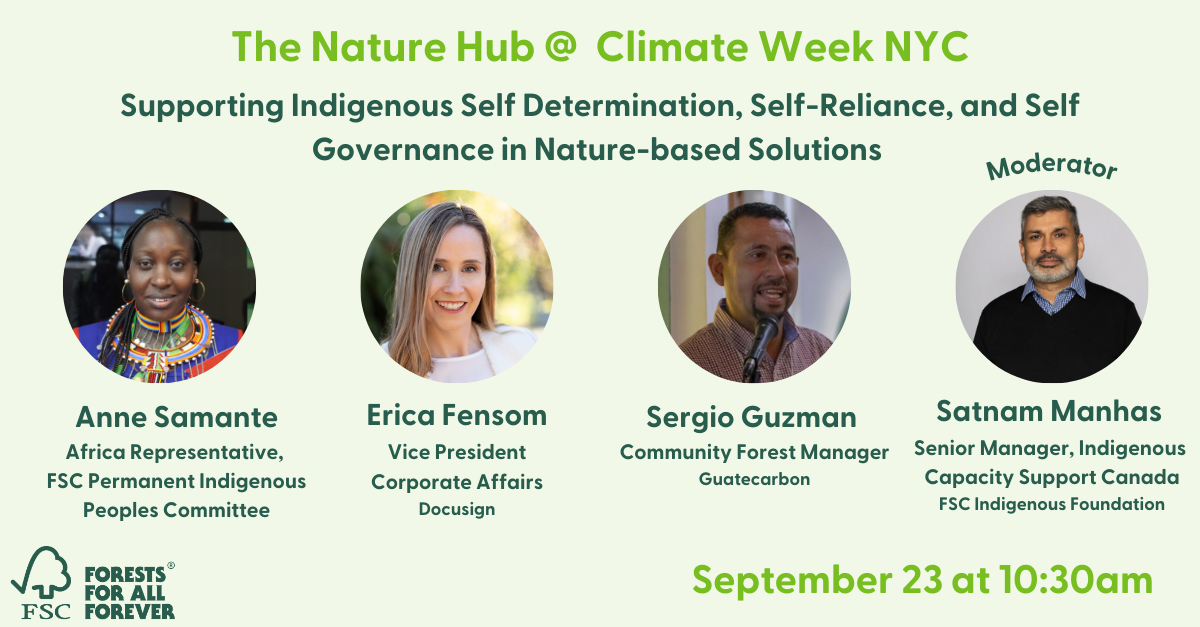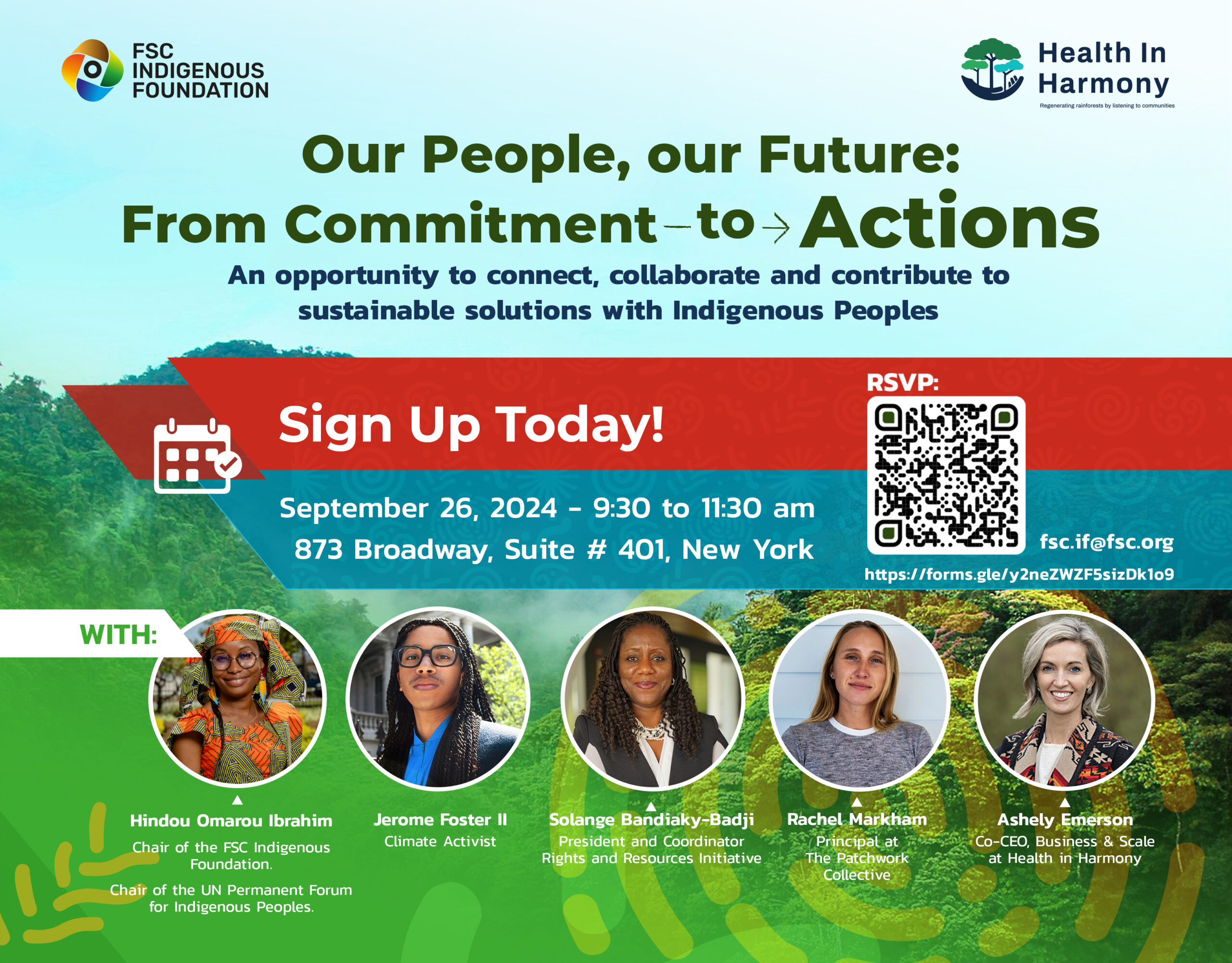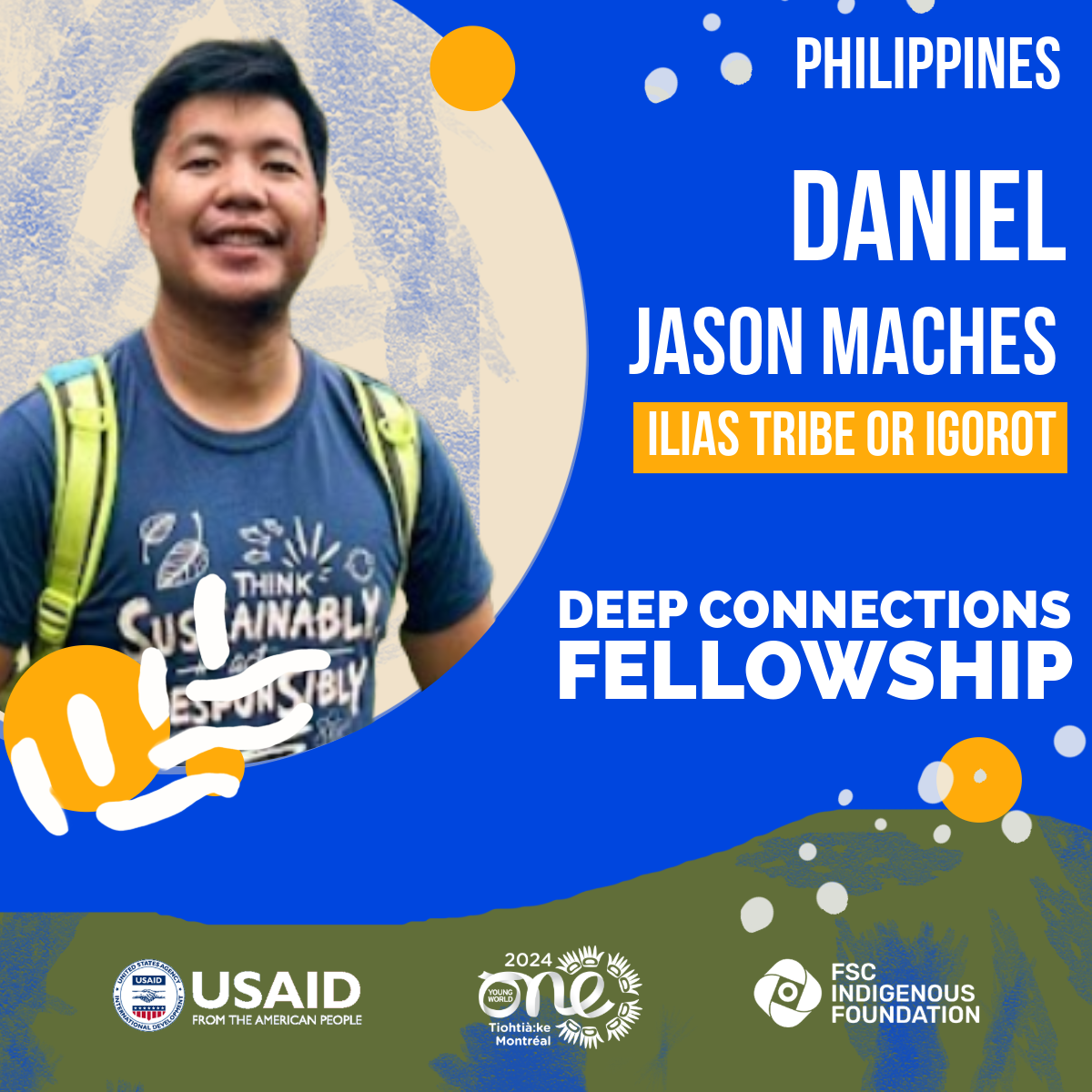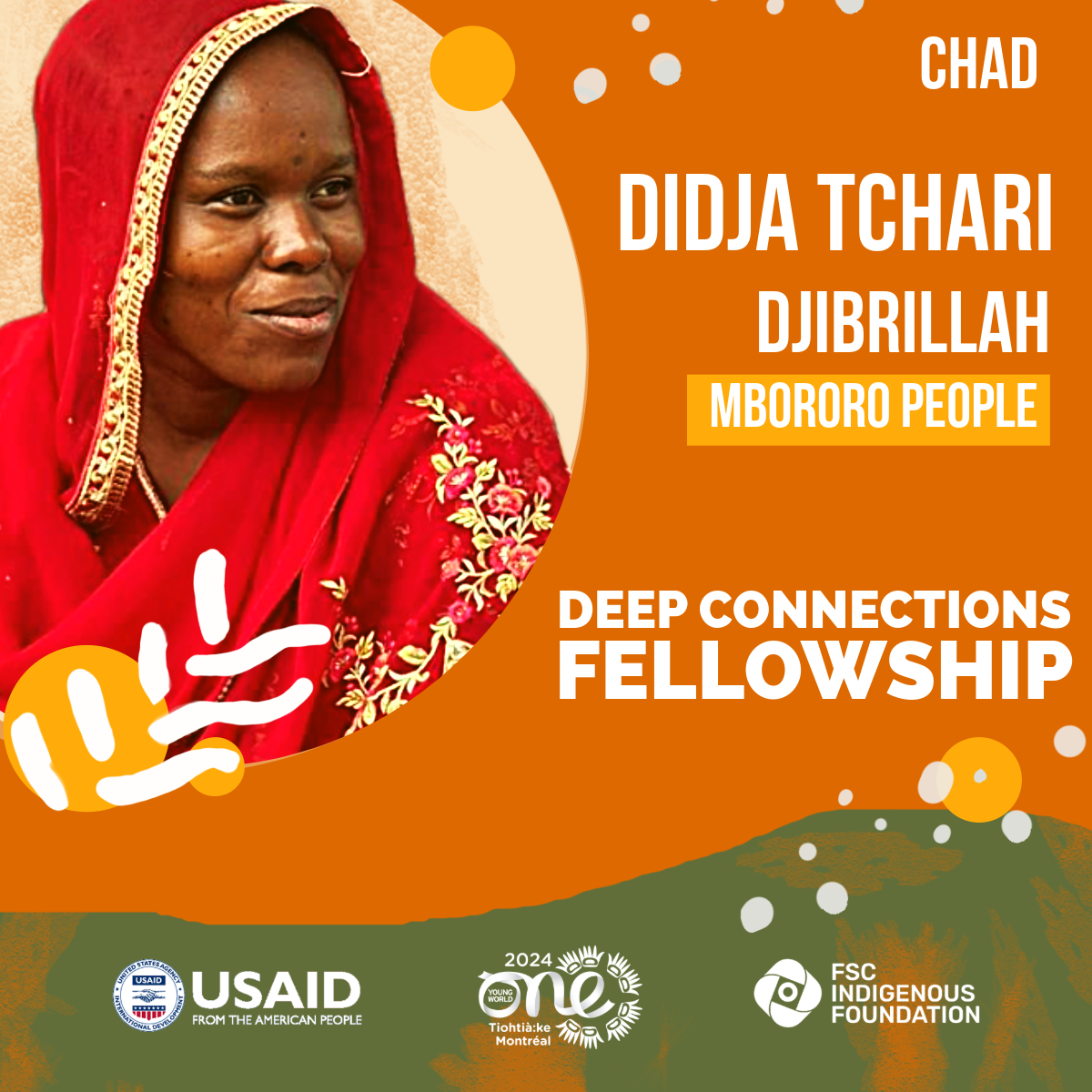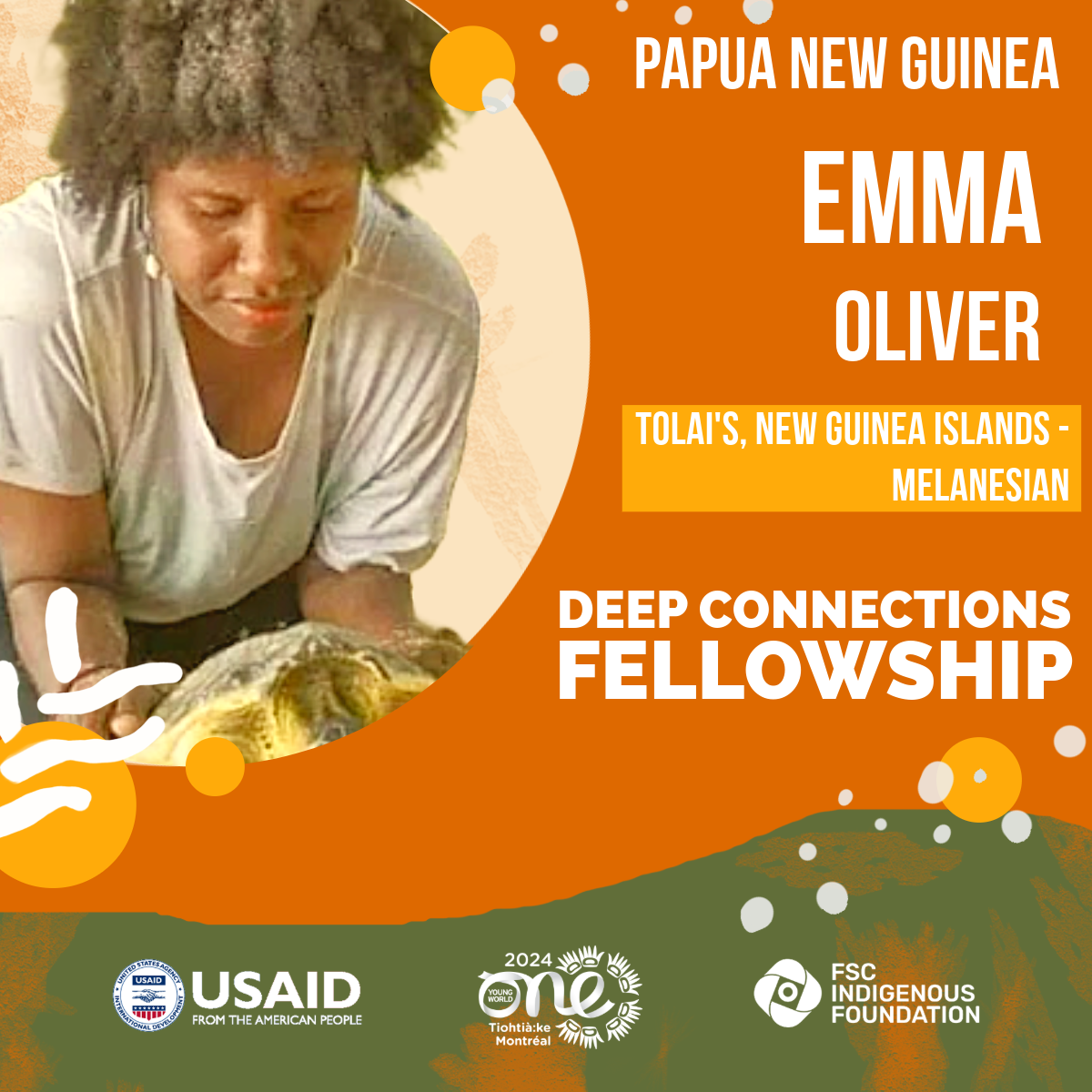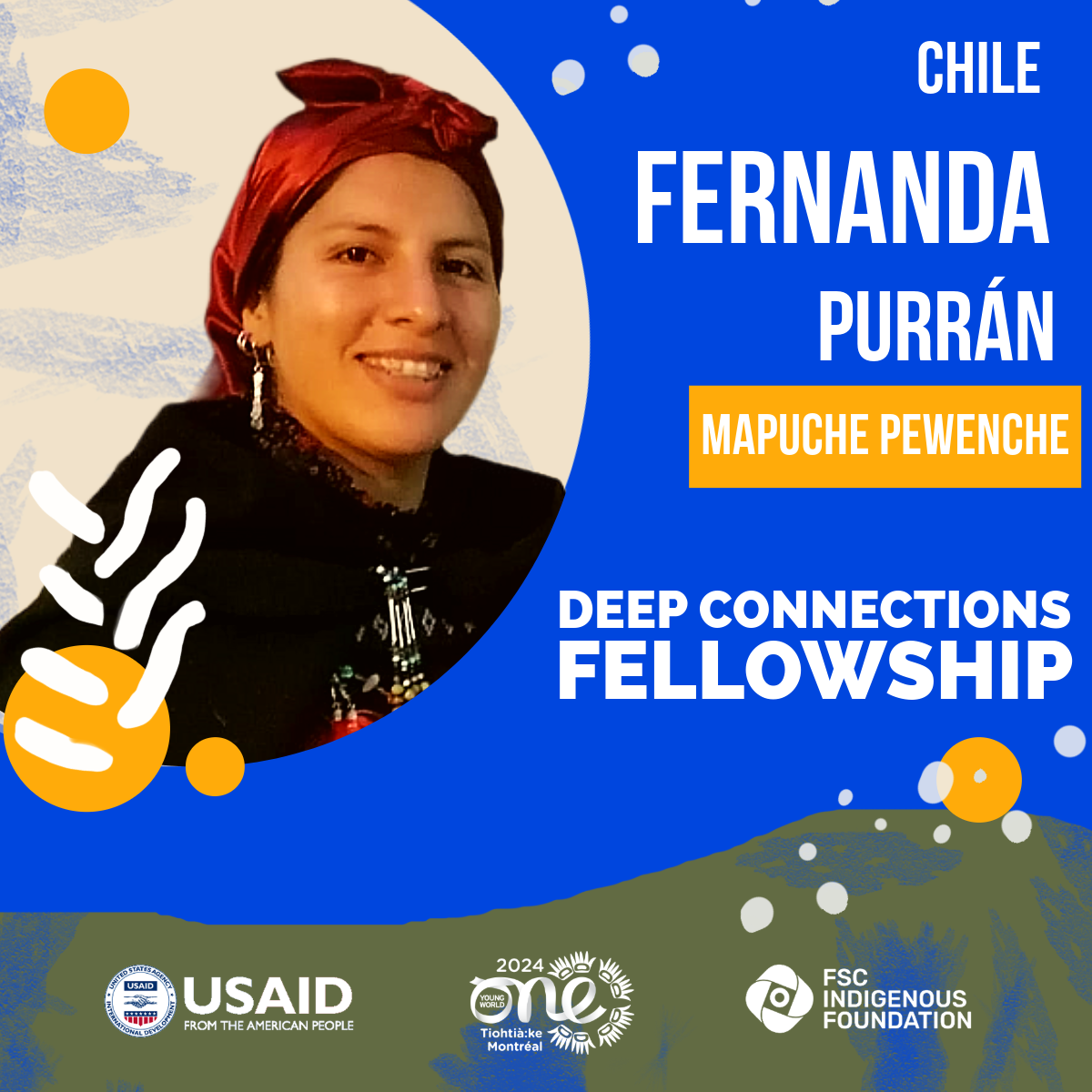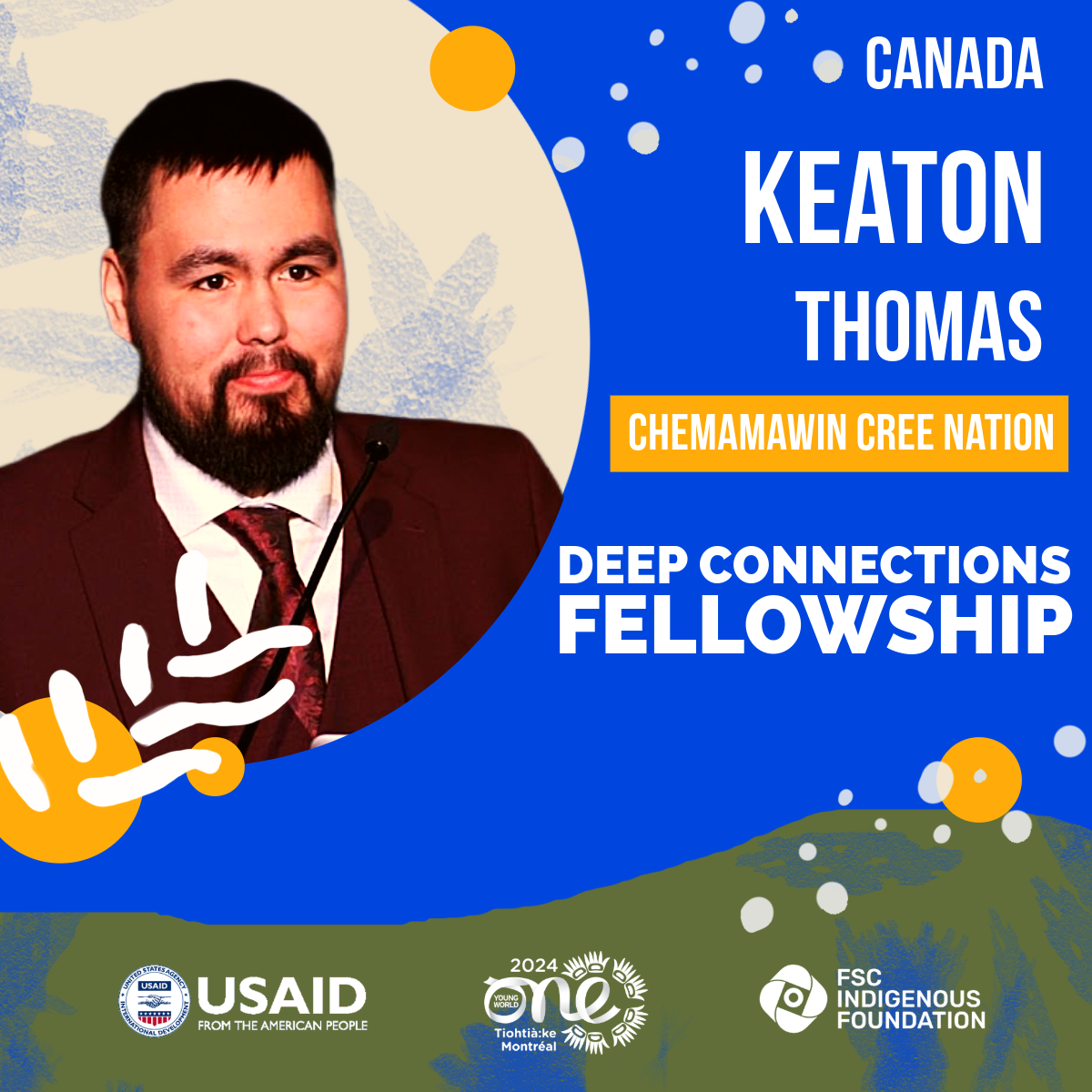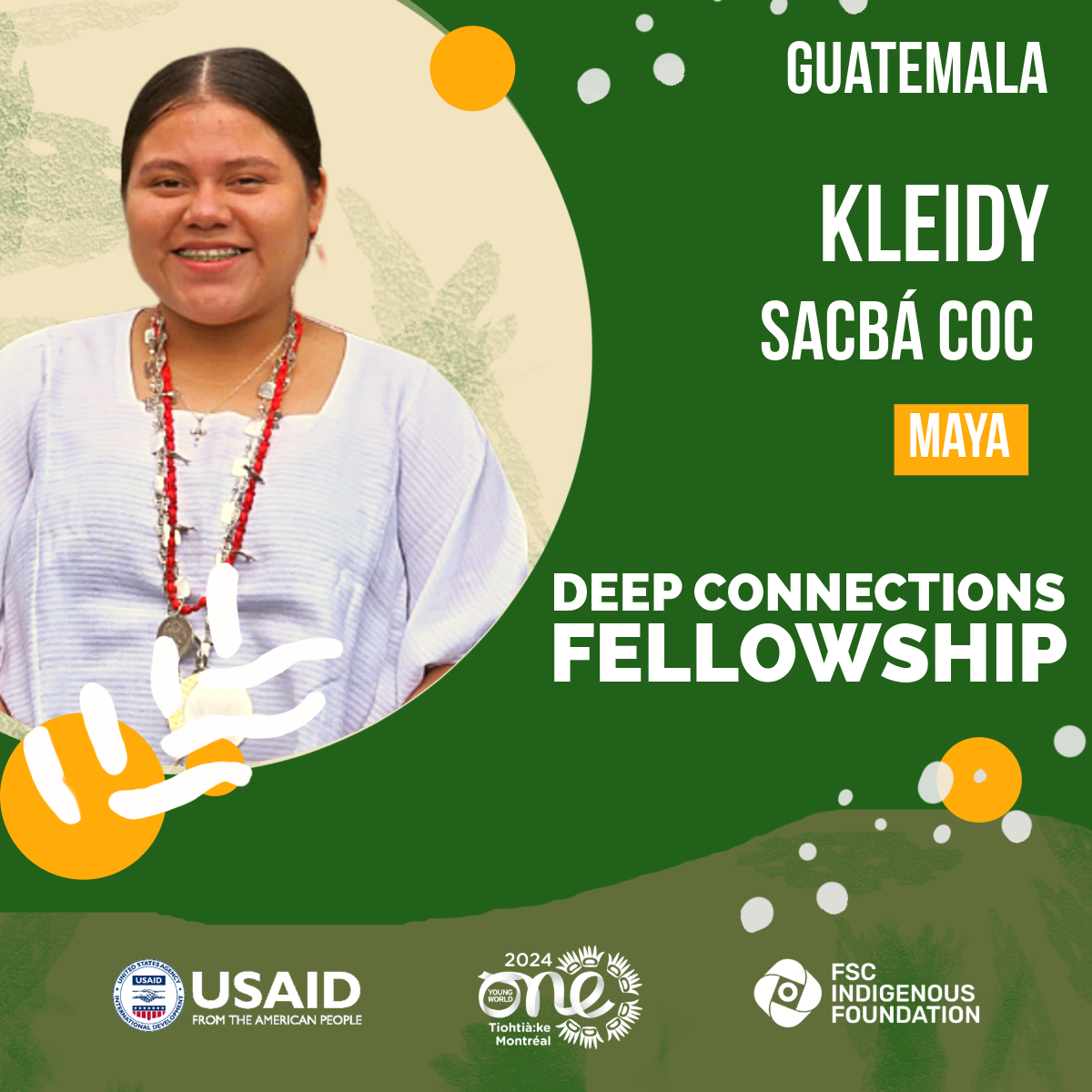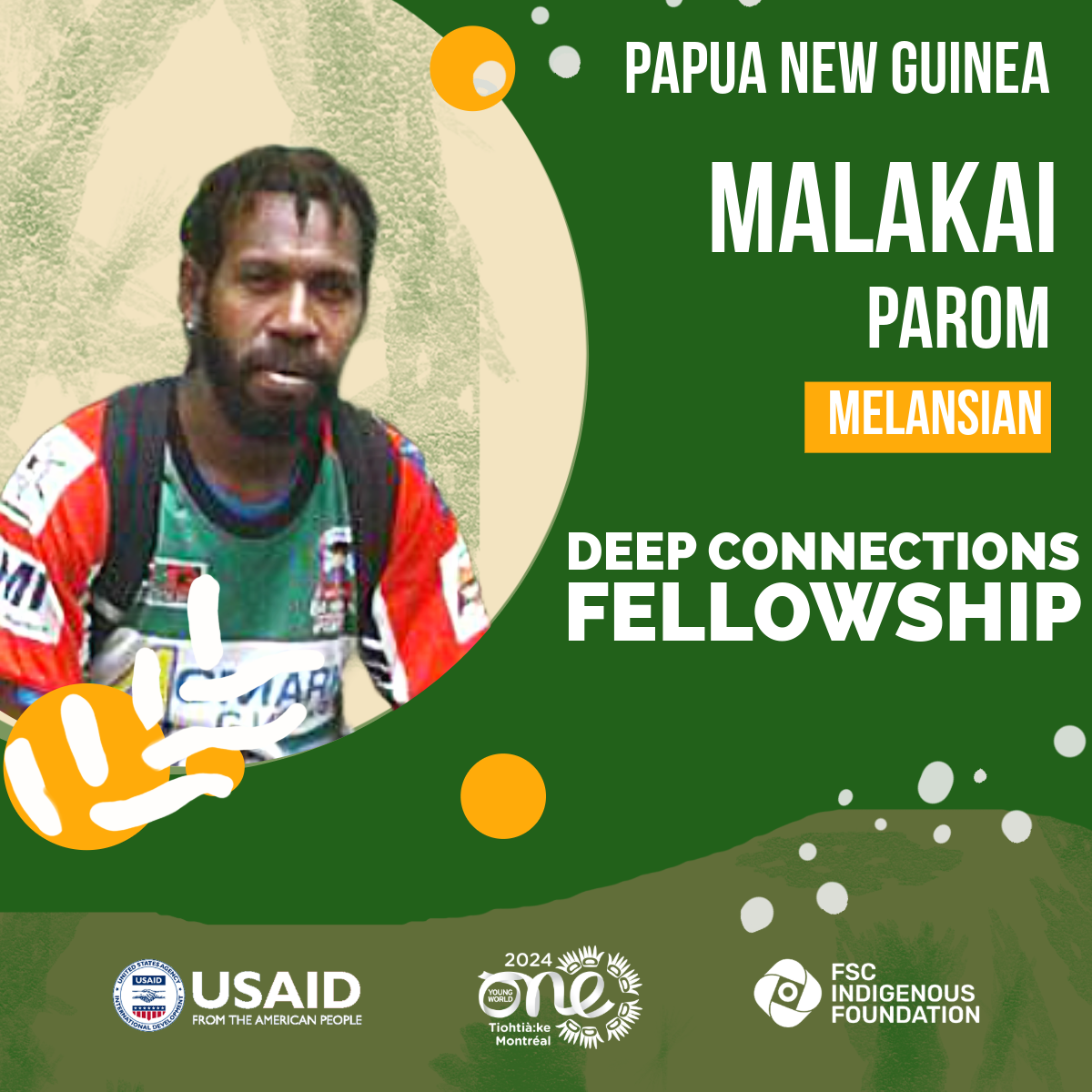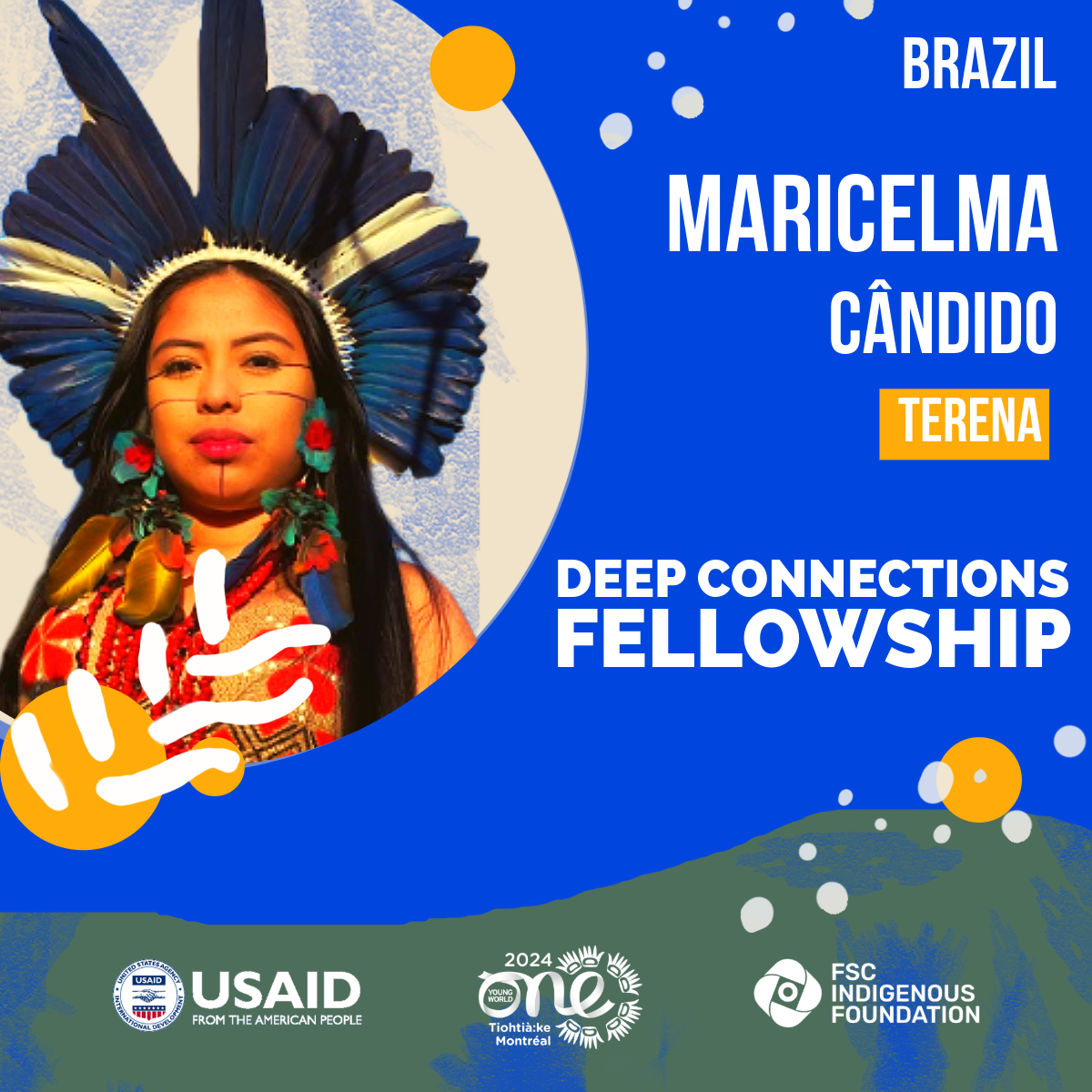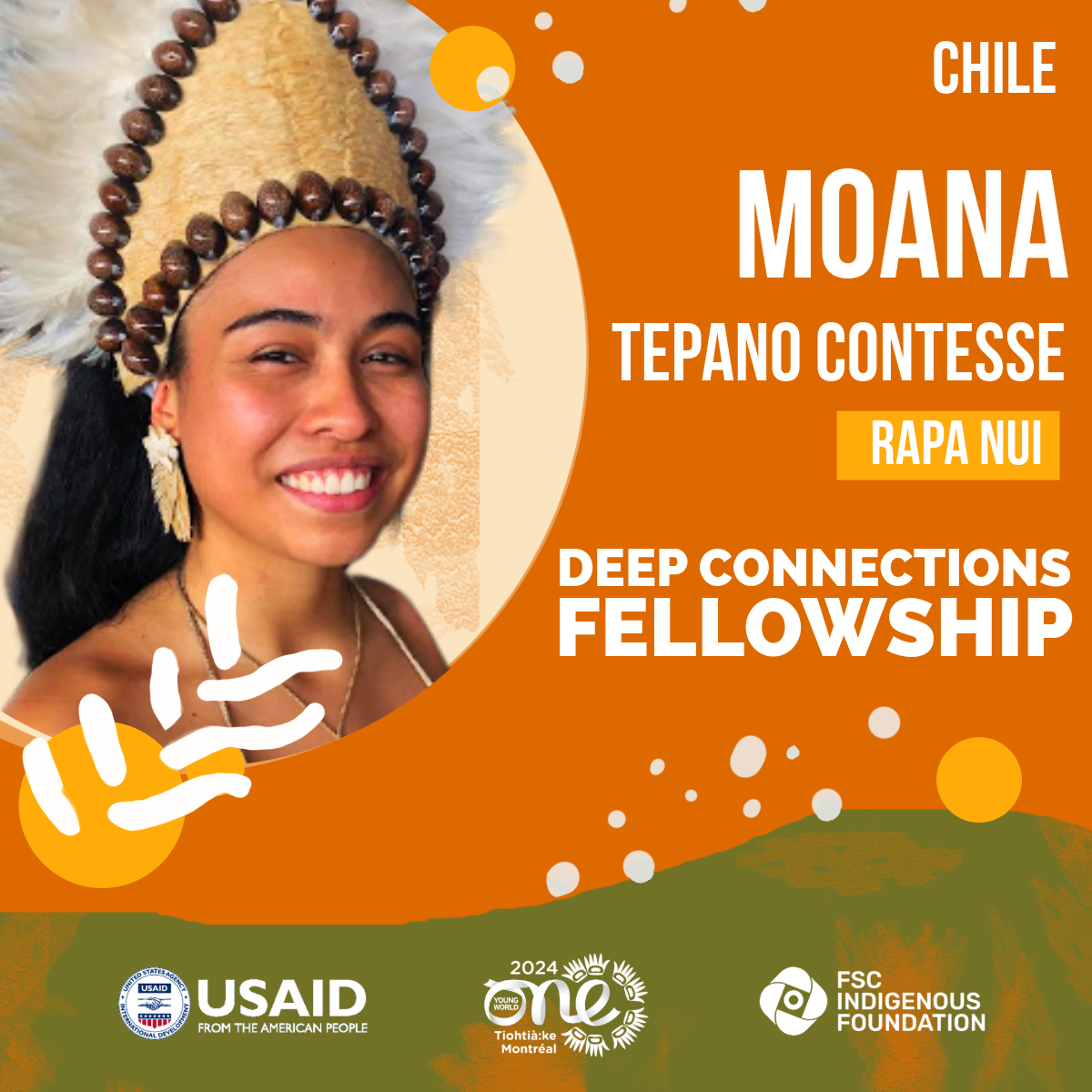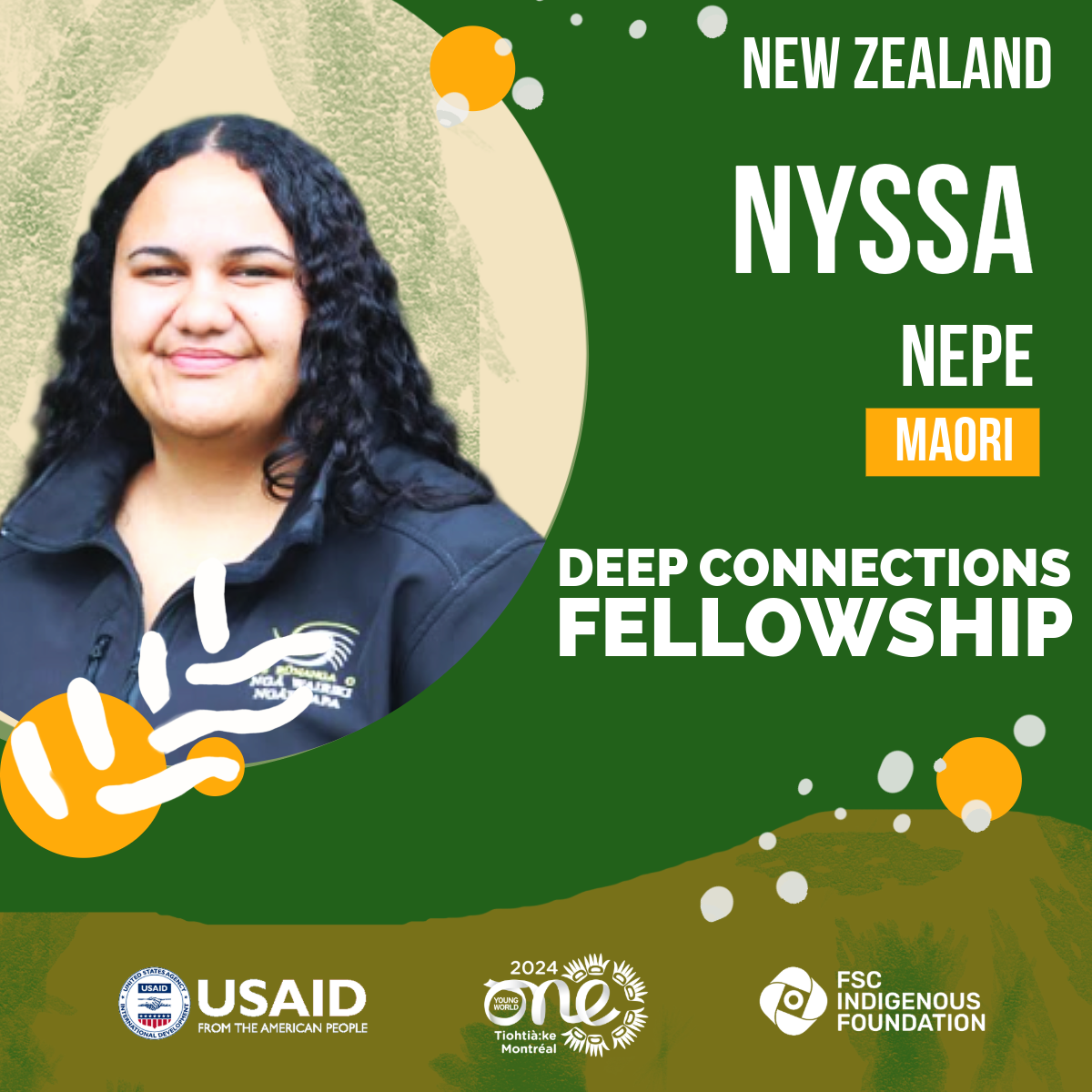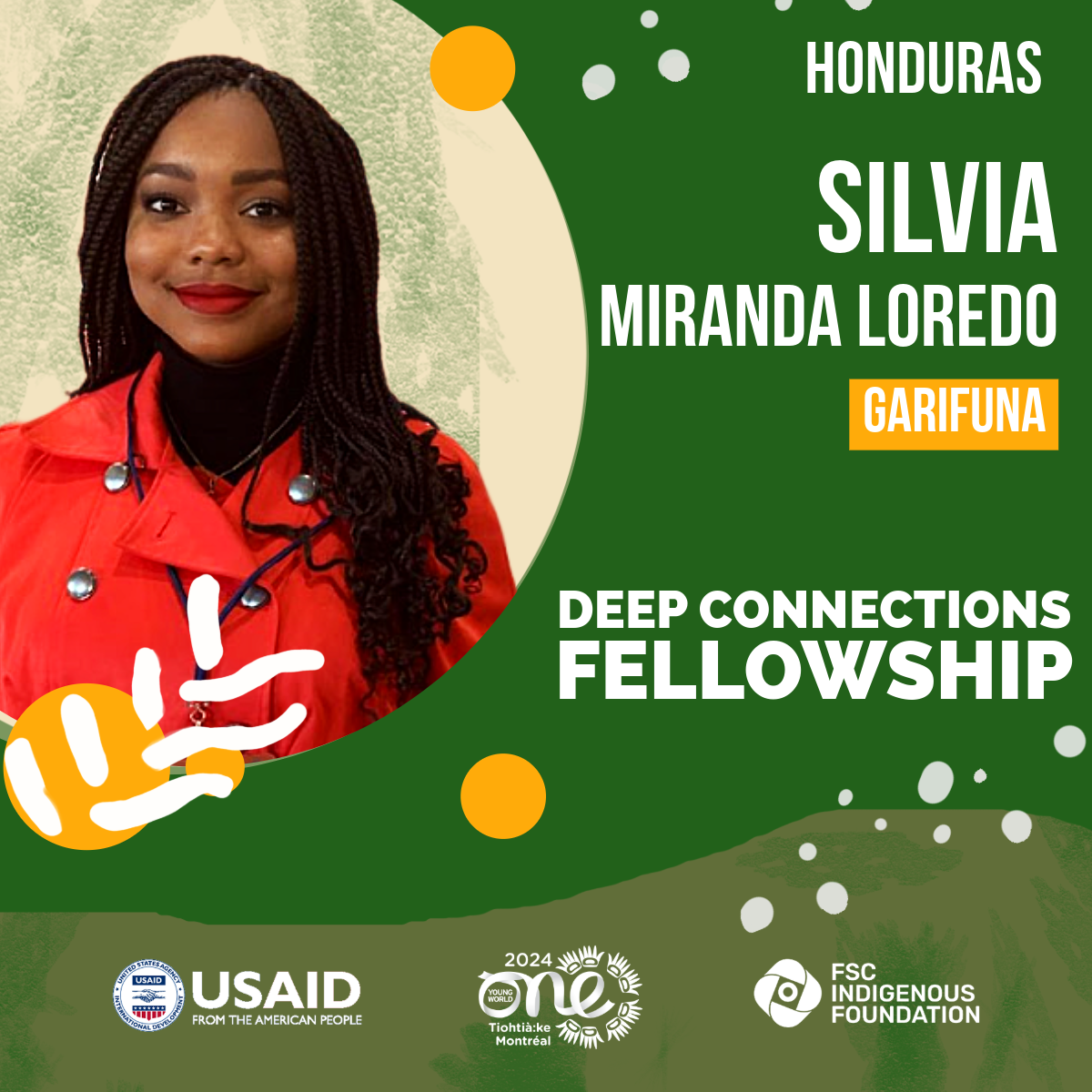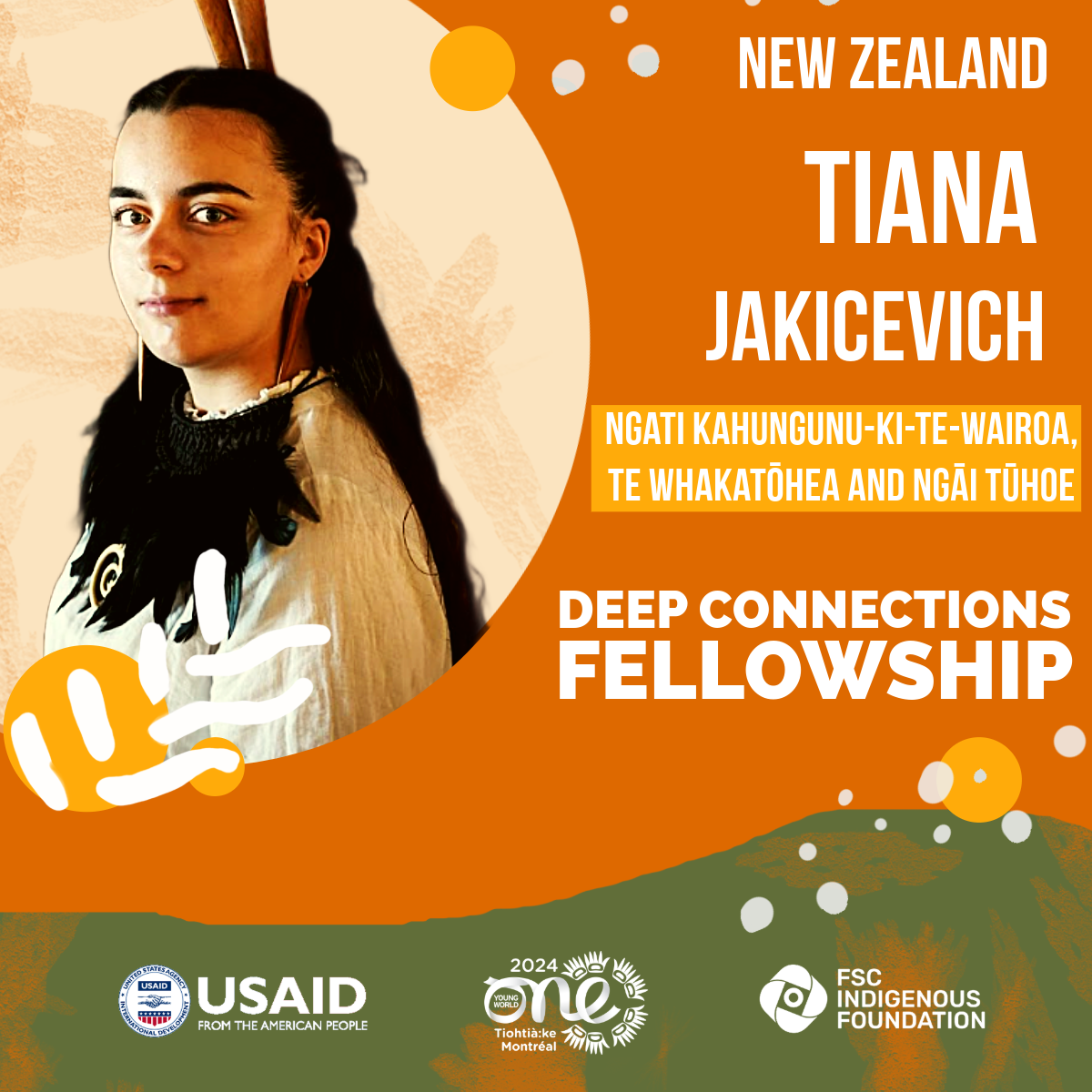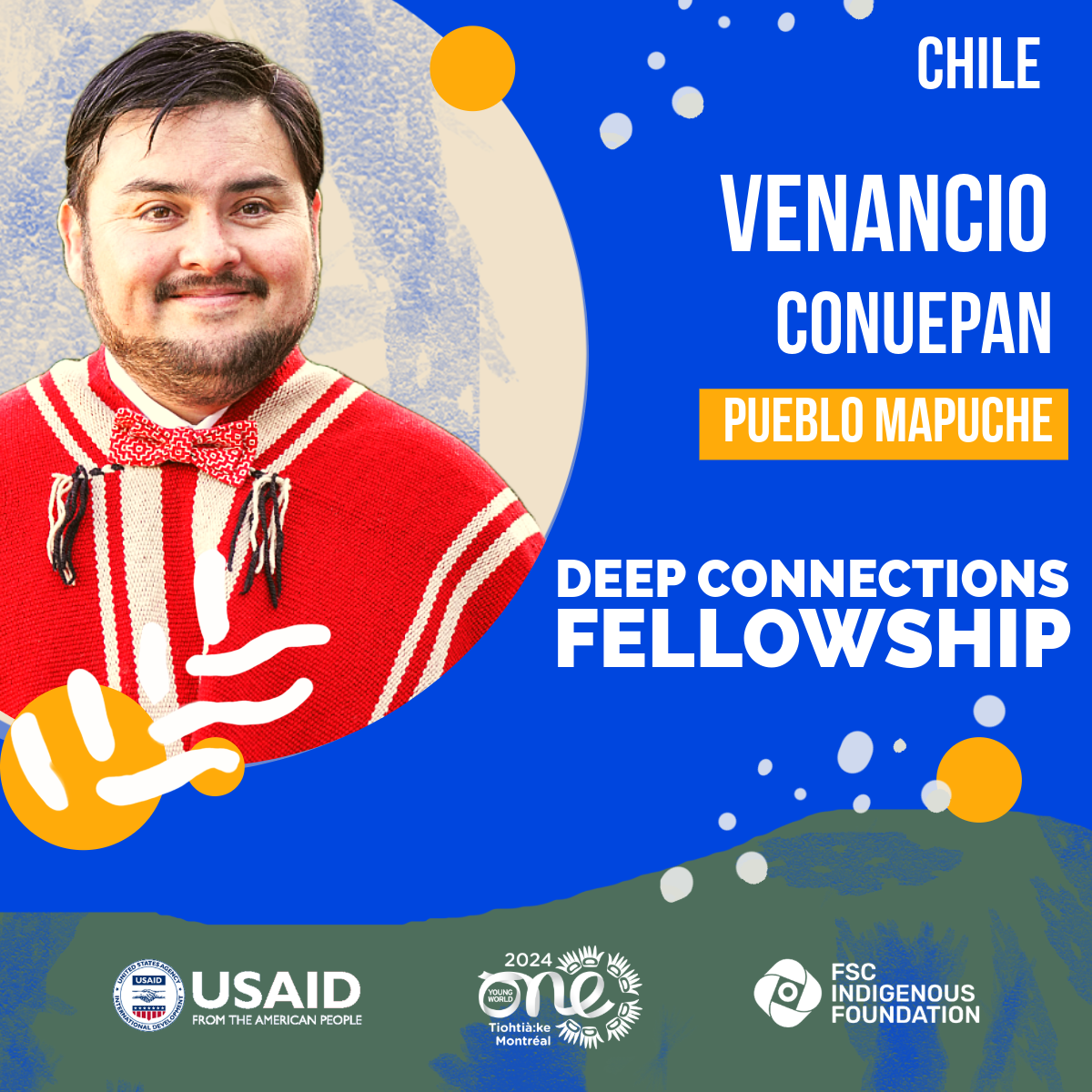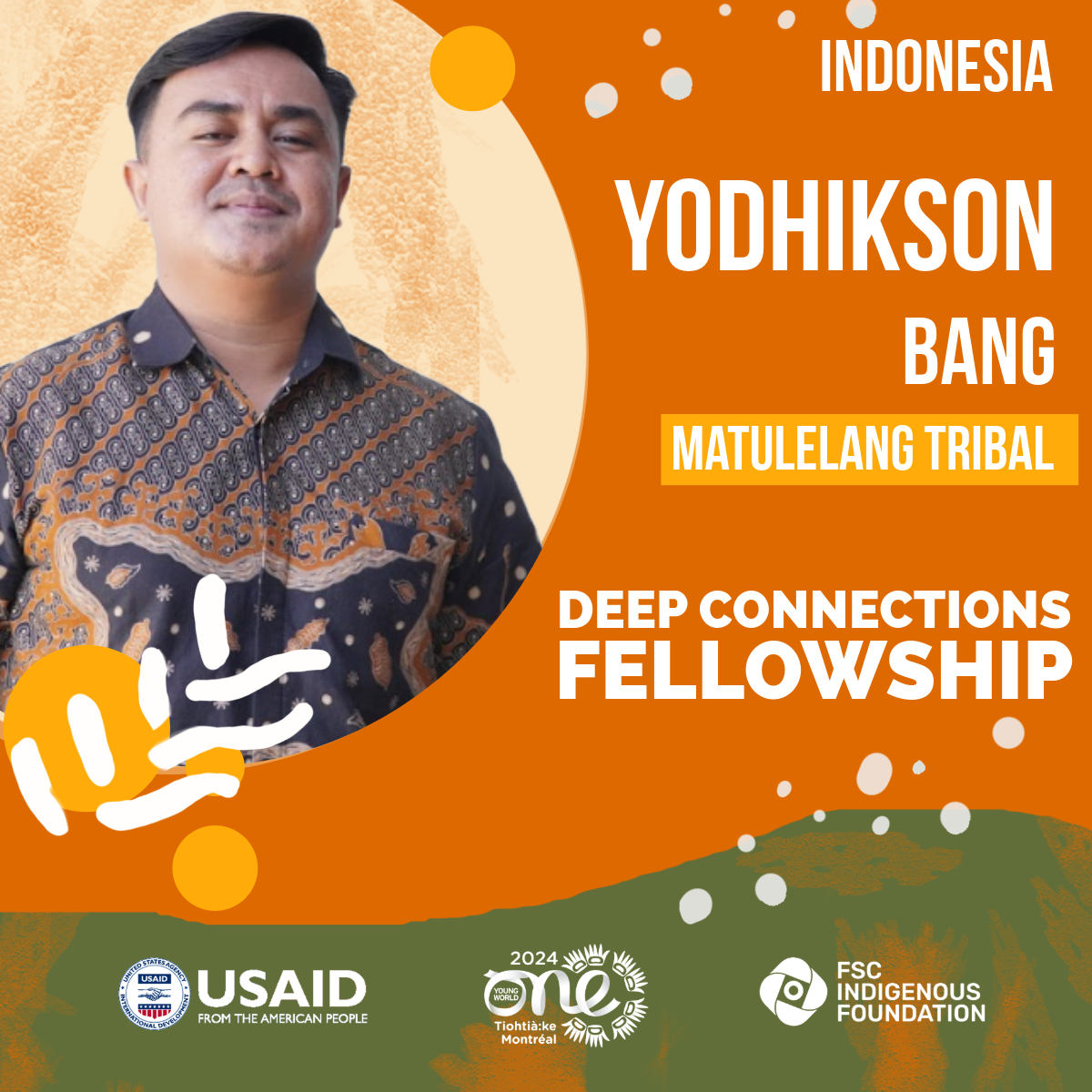Reflections from One Young World
Read blogs from Indigenous youth leaders on their experiences at the summit and how they will carry this knowledge to their communities.
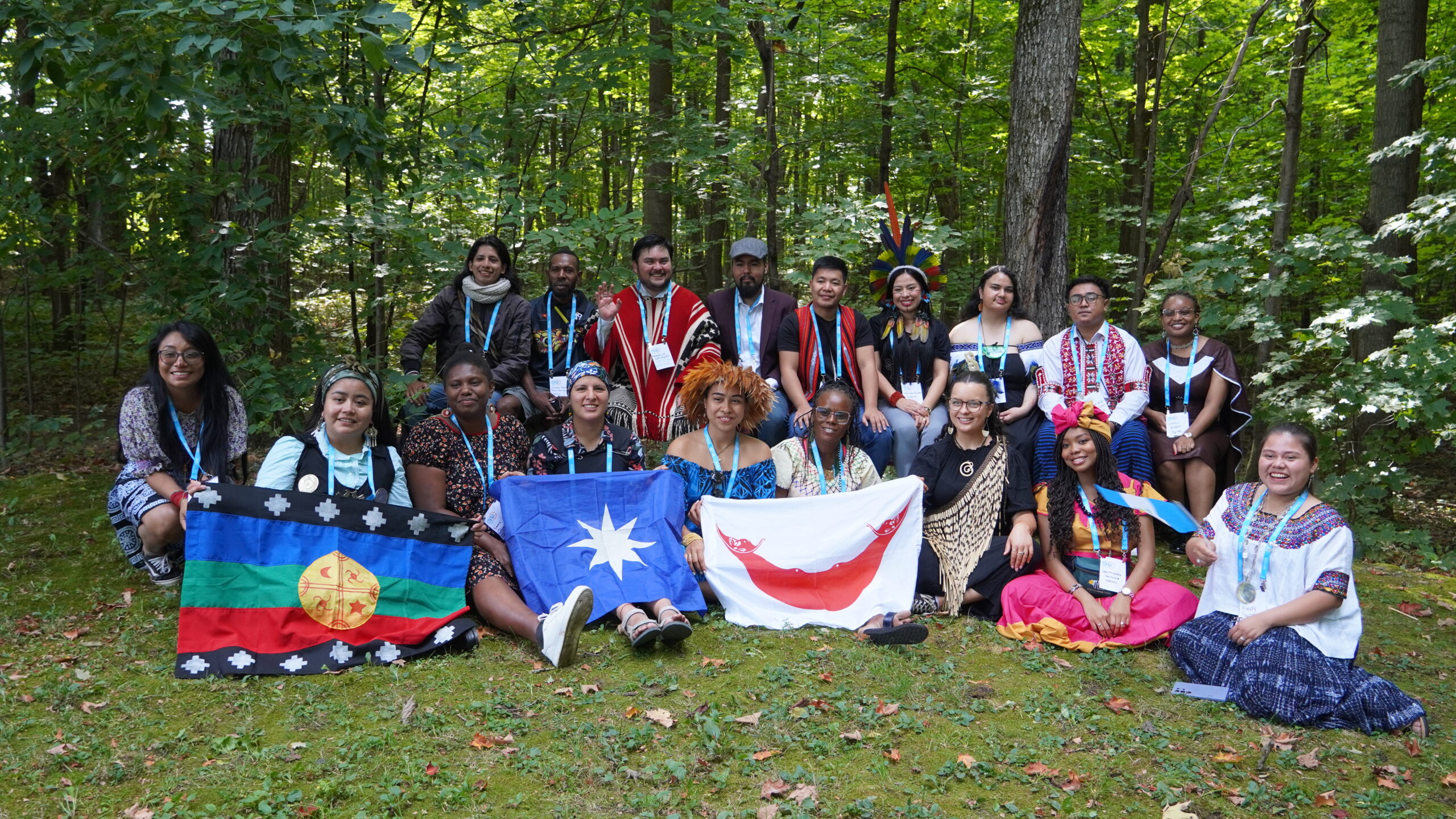
Indigenous youth have deep connections to the history and culture of Indigenous communities. In historical memory, Indigenous youth have held pivotal roles, often as bearers of Indigenous scientific knowledge and cultural values, as well as front-line defenders in the battle for their ancestral lands. Across various Indigenous traditions, youth are expected to progressively assume leadership responsibilities as they grow older, actively engaging in ceremonial practices and community affairs.
In light of this, the FSC Indigenous Foundation (FSC-IF) and the United States Agency for International Development (USAID) launched the Deep Connections Fellowship program to support their leadership and strengthen their communities. Through this program, 15 Indigenous young leaders from Asia, Latin America, the Caribbean, the Pacific, Africa, and North America were supported to attend the One Young World Summit Montréal, 2024 | One Young World held on 17-21 September, 2024 in Montreal Canada. Their participation at the Summit was an opportunity to share, connect, and exchange with other Indigenous youth towards tackling the world’s crises like climate change and Indigenous land injustices among others. As a result of their participation at the Summit they have built their networks and strengthened their leadership and advocacy skills for Indigenous Peoples’ rights. The fellows are now members of the FSC-IF community.
Read blogs below from four fellows on their experiences at the summit and how they will carry this knowledge to their communities and initiatives.
Keaton Thomas-Sinclair
Country: Canada
Indigenous People: Chemamawin Cree Nation
Meeting Expectations
The One Young World Summit exceeded my expectations in every way. From the moment I arrived, I was enveloped in a vibrant atmosphere of hope, diversity, and collective purpose. The caliber of speakers and delegates was inspiring, creating a space where ideas flourished and possibilities seemed limitless. Engaging with like-minded individuals from around the world, united by a shared vision for a better future, ignited a passion within me to make a difference in my community.
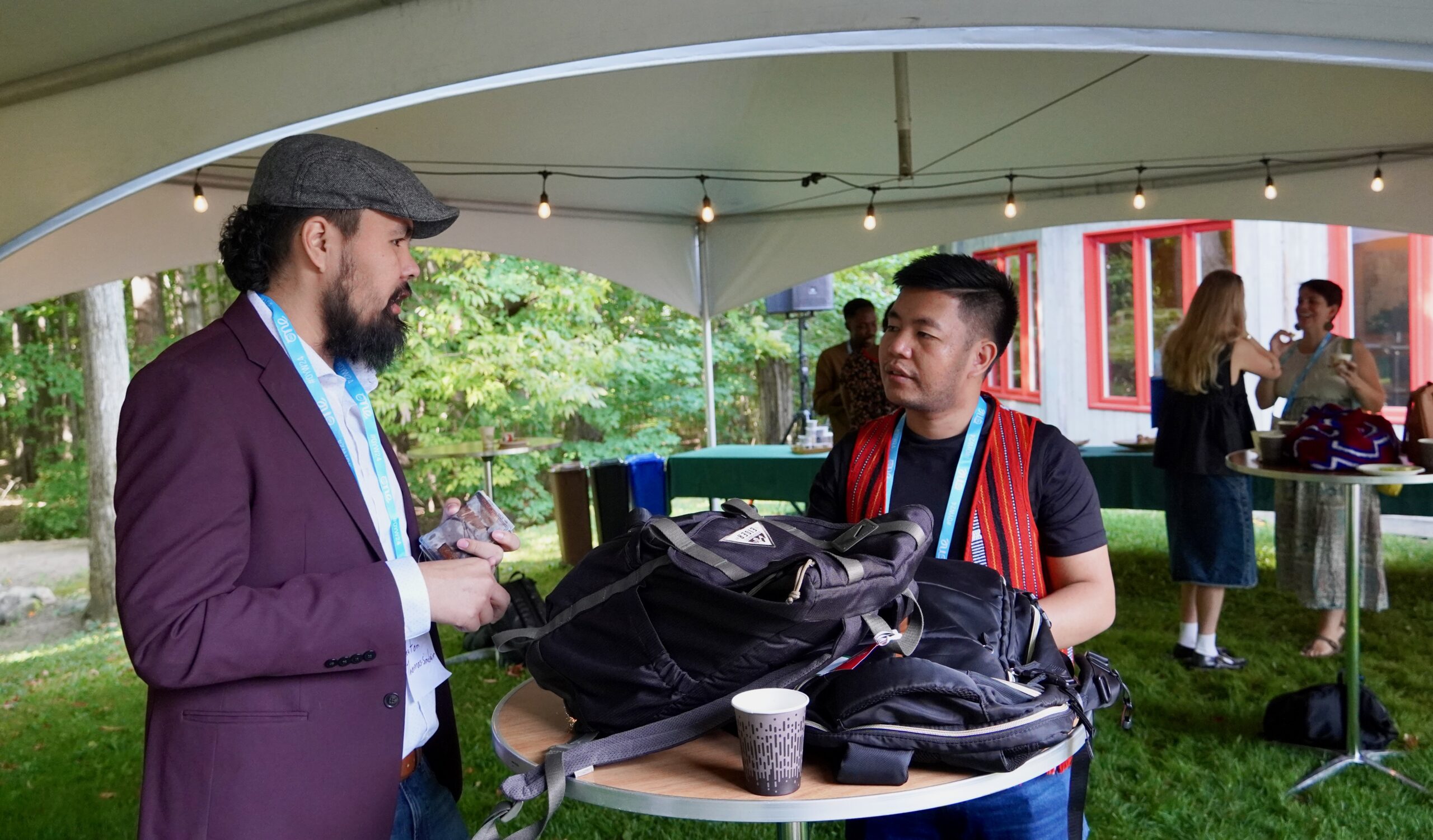
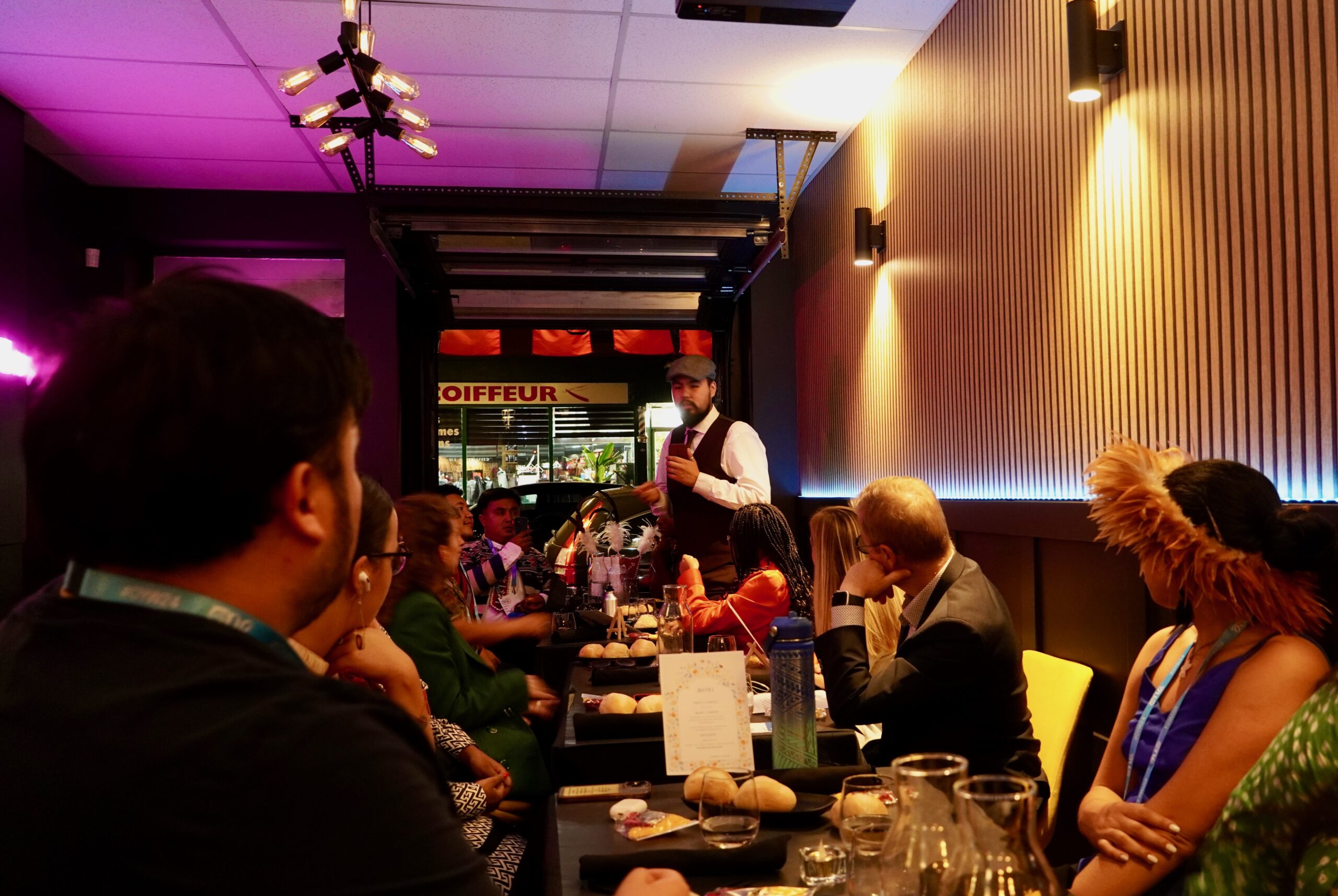
Experience and Achievements
Throughout the summit, I had the opportunity to participate in dynamic discussions and workshops that tackled pressing global issues, including environmental stewardship, Indigenous rights, and youth empowerment. One of the standout moments for me was hearing from Indigenous leaders who shared their stories of resilience and cultural revitalization. Their voices resonated deeply, reminding me of the strength and wisdom embedded in our own traditions.
In particular, the summit sparked the idea for my foundation, “Guardians of Our Heritage,” dedicated to revitalizing and preserving Indigenous language, history, land, and education. This initiative aims to empower youth to reclaim their future, drawing on the lessons of our ancestors. I also connected with fellow delegates, forming bonds that transcended borders. Together, we shared our aspirations and collaborated on innovative solutions to address the challenges facing our communities. One achievement that I hold dear is the commitment I made with others to support each other’s initiatives back home, fostering a network of support that will amplify our efforts to drive positive change.
Impact of Participation
The impact of my participation during that week was profound. It reignited my sense of purpose and commitment to my community. I returned home with a renewed sense of responsibility to uplift Indigenous voices and advocate for the issues that matter most to us. The experiences I shared with others reinforced the idea that we are not alone in our struggles; there is a global community of young leaders dedicated to creating change.
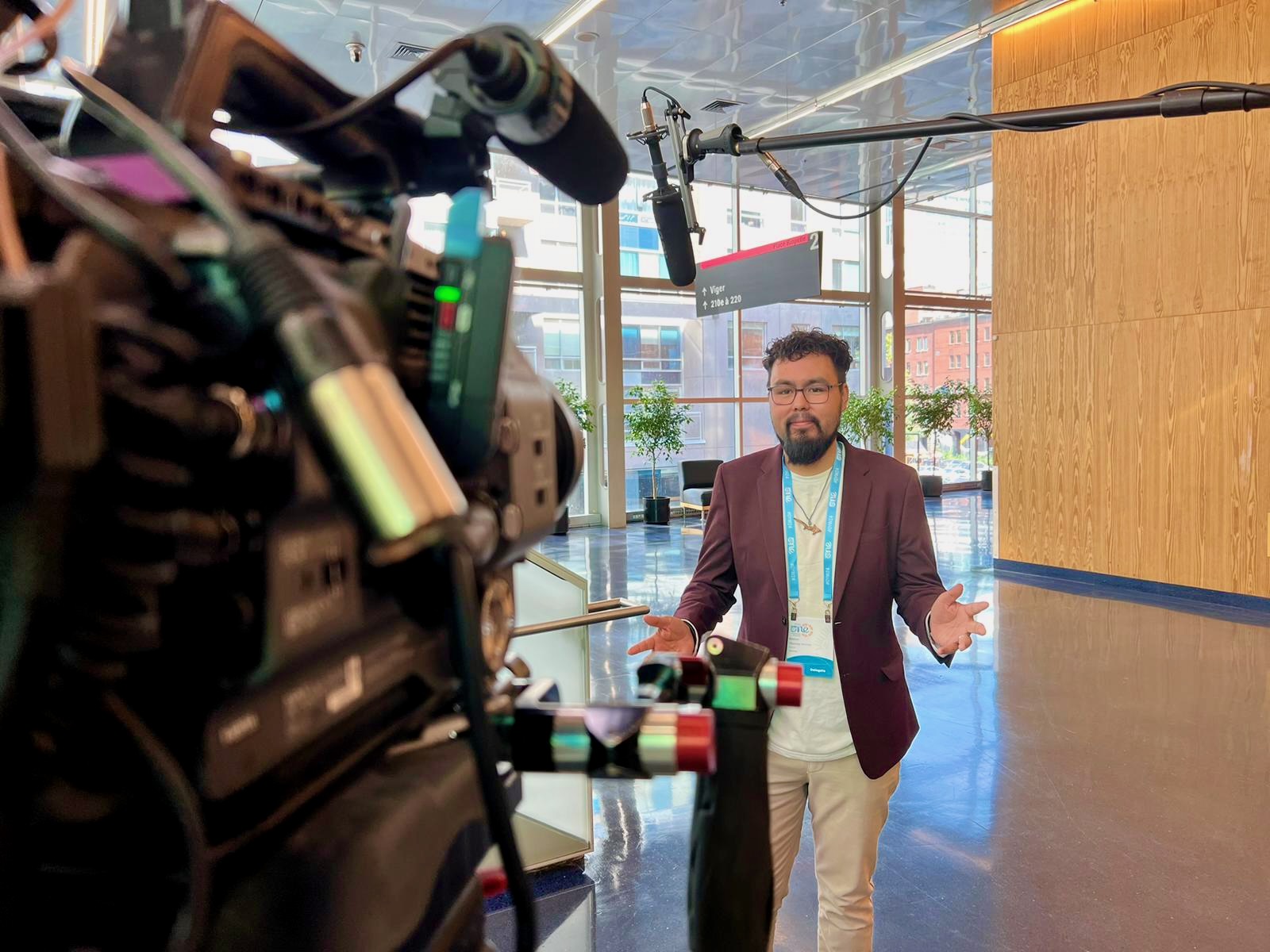
Lessons Learned and Future Application
One of the most important lessons I learned at the summit was the power of collaboration. Together, we can achieve so much more than we can alone. I plan to apply this lesson by fostering partnerships within my community, bringing together youth, elders, and leaders to engage in open dialogues and collaborative initiatives. By working together, we can create a shared vision for the future that honors our heritage and empowers the next generation.
In conclusion, the One Young World Summit was not just an event; it was a catalyst for personal and collective growth. It inspired the vision for my foundation and deepened my passion for preserving our culture and empowering youth. I left with a heart full of hope and a commitment to reclaim our future, inspired by the stories of resilience and strength shared by my fellow delegates. I look forward to sharing these reflections and inspiring others to take action in their own communities.
Kleidy Migdalia Sacbá Coc
Country: Guatemala
Indigenous People: Maya
One of the most rewarding experiences in my life and one of my most outstanding achievements was being part of the Empowering Global Youth Through International Mobility and Intercultural Exchange Workshop, where I broadened my horizons and strengthened my commitment to continue developing professionally and personally in an international context to continue contributing to the development of my community.
What was the impact of your participation during the week at One Young World?
Being able to represent the Maya Q’eqchi’ People and share our struggles and proposals, raise the voice of my community and make visible the importance of inclusion and youth leadership in building peace and sustainability.
Upon my return, I will implement new strategies and collaborations that contribute to strengthening the social fabric and local development.
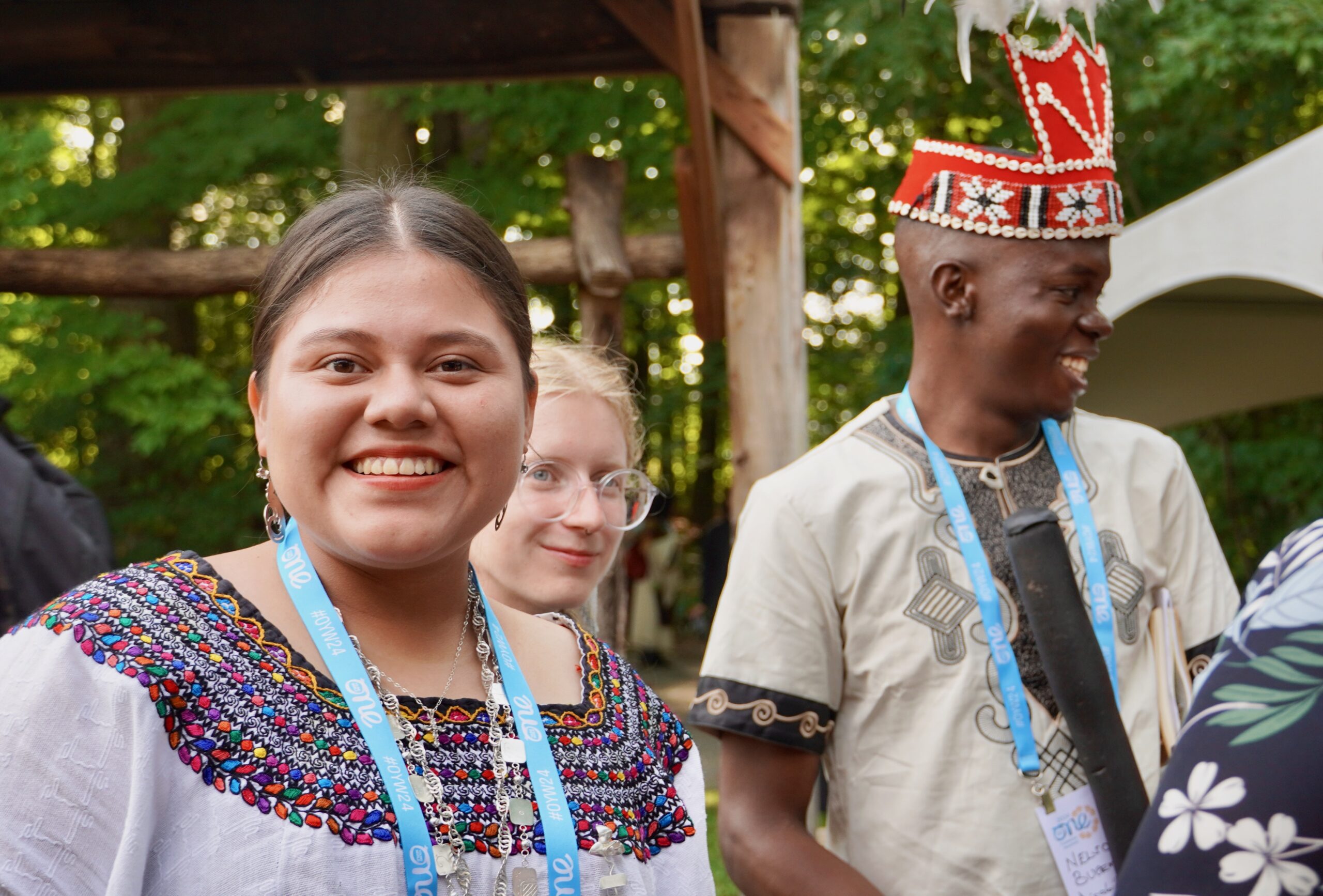
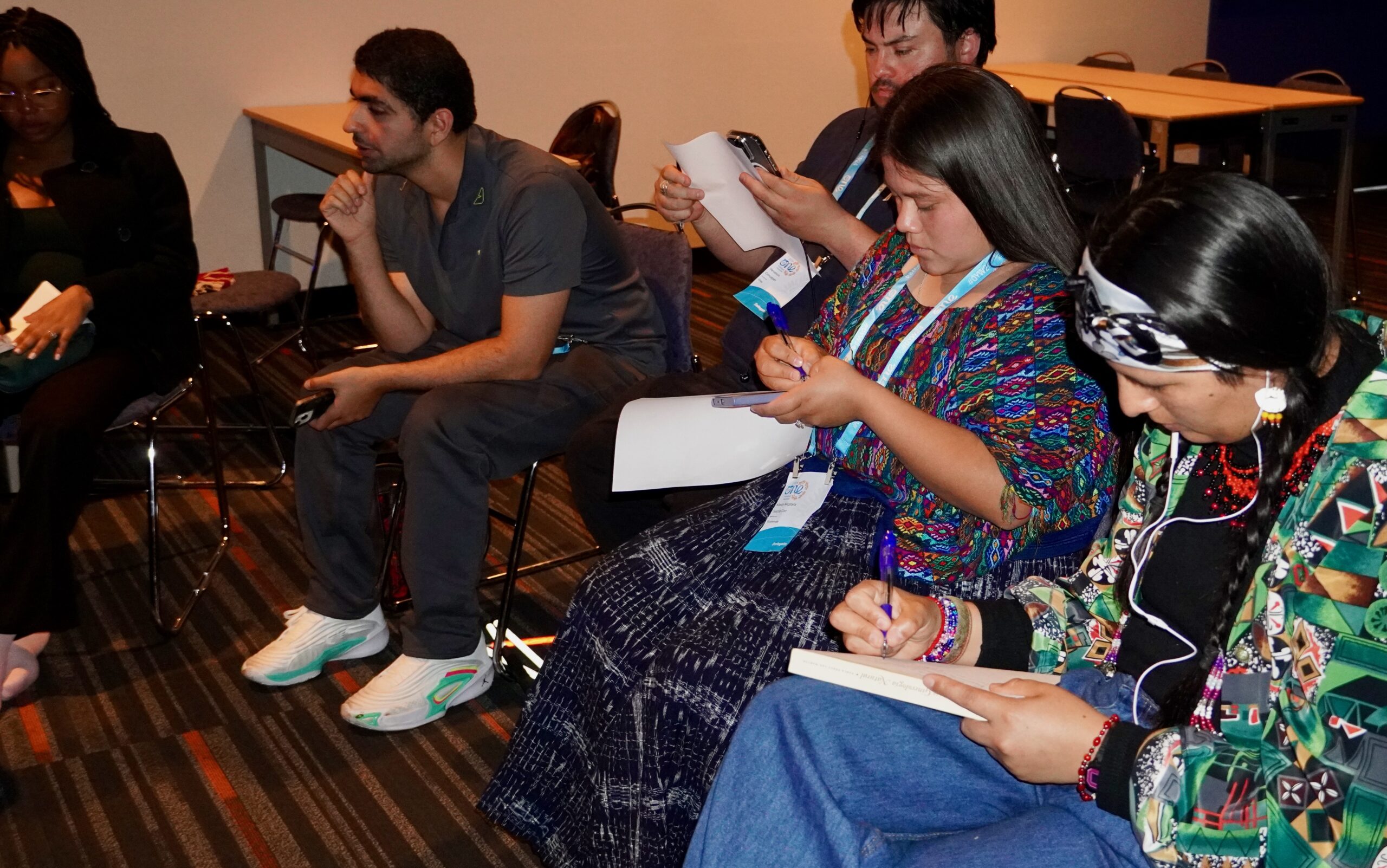
What lessons did you learn and how do you plan to apply them in your community?
My participation in One Young World was a transformative experience that allowed me not only to connect with young leaders from around the world, but also to deepen my understanding of cultural diversity and the challenges faced by Indigenous Peoples globally. During the event, I had the opportunity to be part of the Indigenous Day, a unique space where I was able to learn about the millennial history of different Indigenous Peoples, learn about their cultures and share the struggles they face to preserve their territories, languages, and traditions.
This day was especially meaningful because, by listening to the stories and experiences of other Indigenous leaders, I better understood the similarities and differences in our realities, which motivated me to strengthen my commitment to defend the rights of our communities. In addition, seeing the presence of Indigenous youth on a global stage such as One Young World inspired me to continue promoting spaces for participation so that our voices continue to be heard in the decisions that affect our future. Upon returning, I feel more empowered to implement what I have learned and create new alliances that contribute to the promotion of the rights and visibility of Indigenous Peoples.
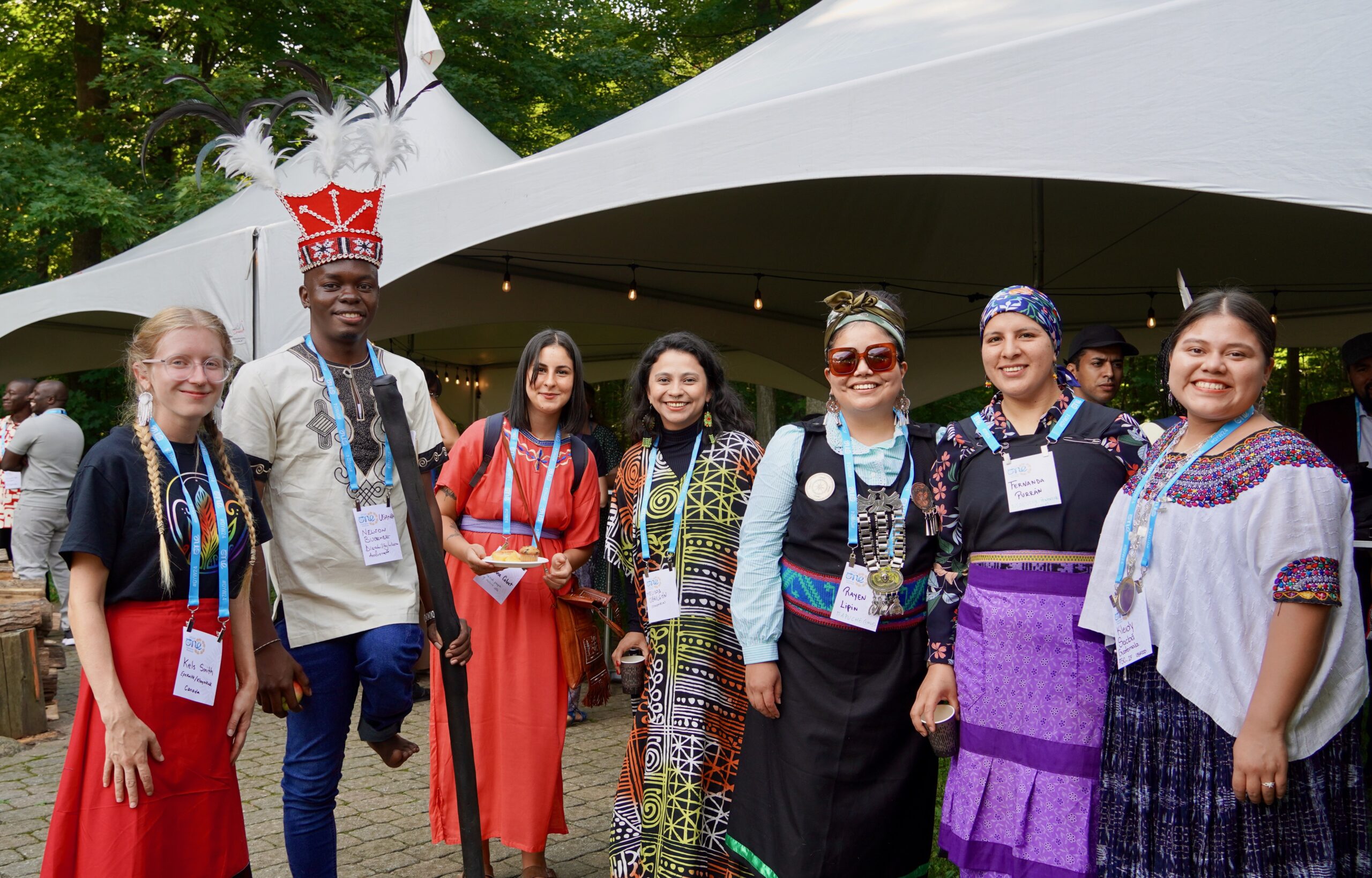
Didja Tchari Djibrillah
Country: Chad
Indigenous people: Mbororo
Did the One Young World Summit live up to your expectations?
Yes, being inspired and motivated by listening to speeches by opinion leaders and activists has become a source of inspiration for me to get actively involved in causes that are close to my heart. I also took part in some interactive sessions on health and conflict resolution.
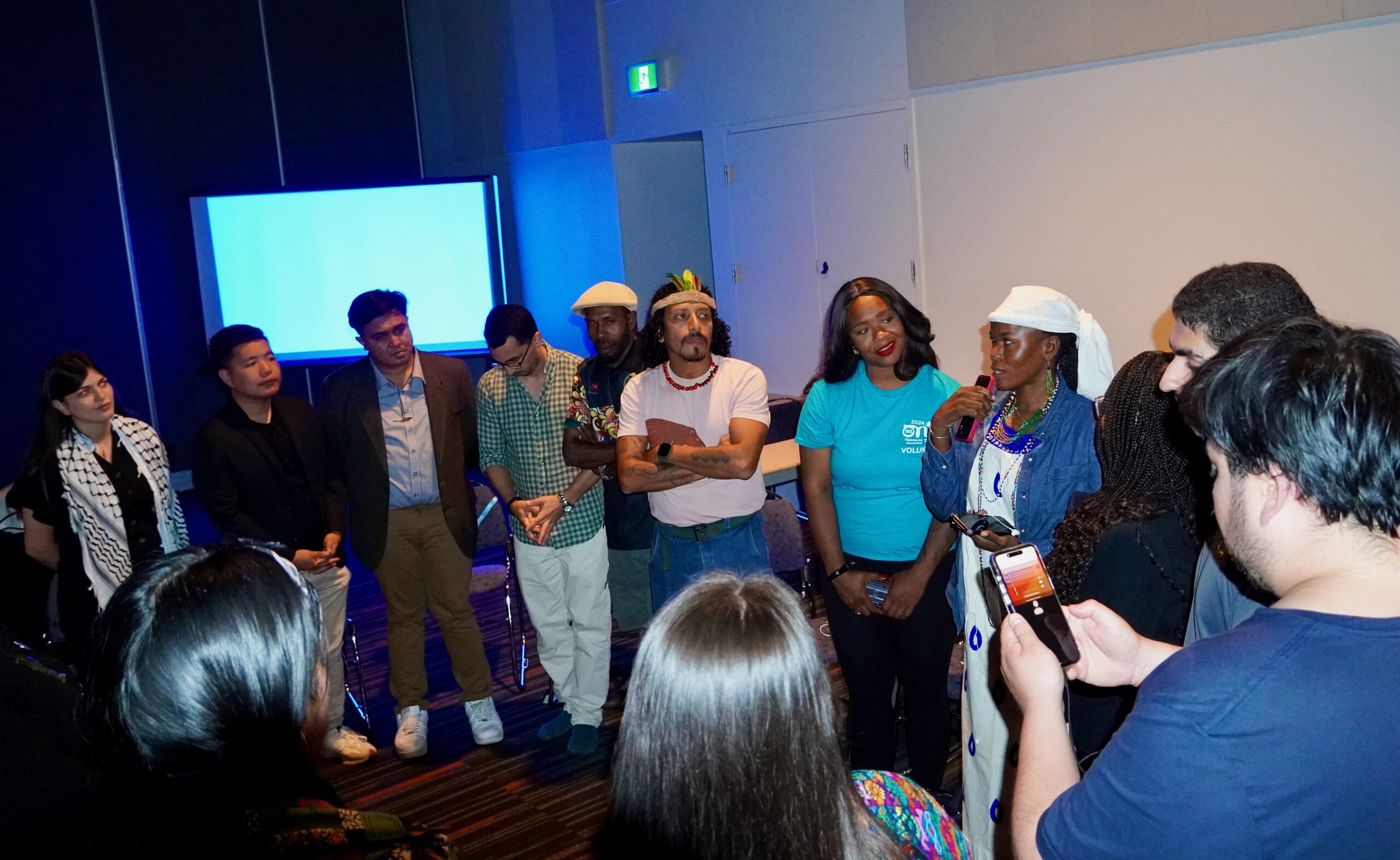
What was your experience like, and what achievements would you like to highlight?
During my participation in One Young World, I had the opportunity to meet other participants who often shared our experiences. To learn from others and develop networks that can help us pursue our goals. The achievements I’d like to highlight are community projects, i.e. initiatives aimed at solving local problems, whether in education, health, the environment or gender equality. It also involves working with young leaders from other countries to tackle global challenges, promoting cultural exchange and cooperation.
What was the impact of your participation in the One Young World Summit?
It enabled me to make connections with leaders, entrepreneurs, and innovators. These relationships can lead to future collaborations and professional opportunities.
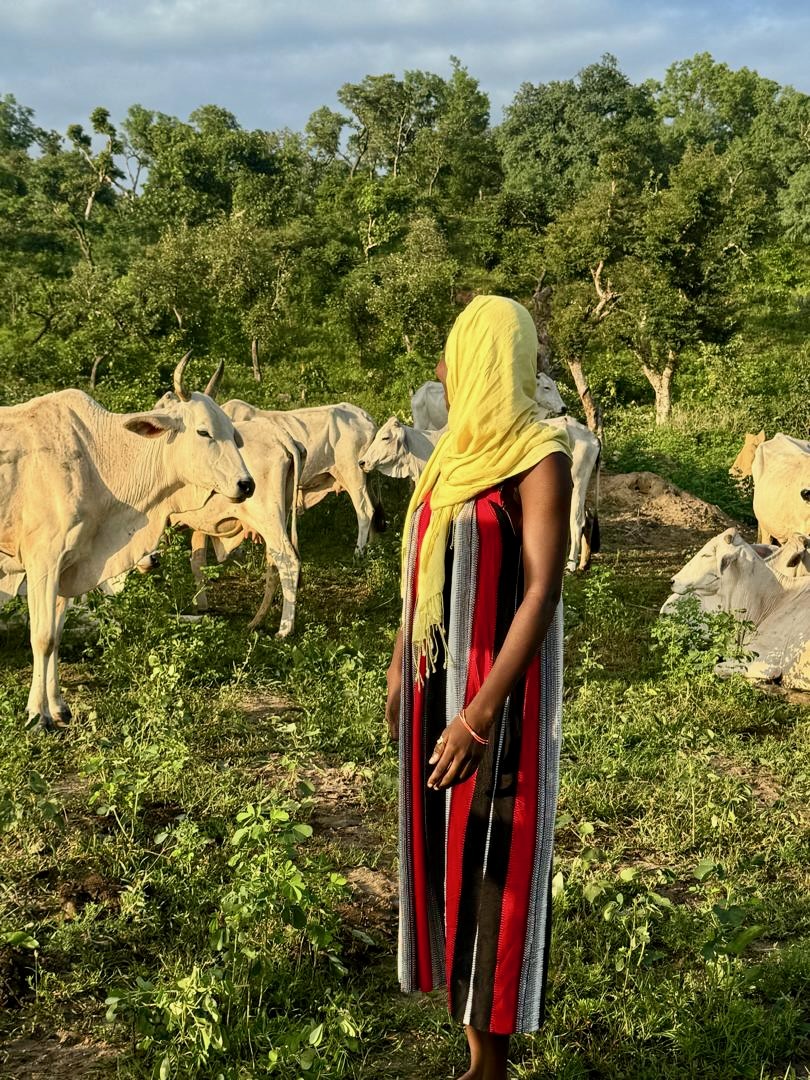
Emma Oliver
Country: Papua New Guinea
Indigenous people: Tolai’s, New Guinea
As a young leader working in community development and marine conservation, I was eager to meet global changemakers and expand my understanding of how other young people are addressing issues similar to those faced by my community in Papua New Guinea (PNG). The Summit didn’t just meet my expectations, it surpassed them.
From the moment I arrived, the energy of being surrounded by passionate, driven individuals was infectious. I was inspired by the sessions, particularly those focused on sustainability, climate change, and the role of youth in shaping the future. The summit provided a platform for me to not only listen but also actively participate in conversations around these critical topics.
One of my key objectives was to explore how technology, such as artificial intelligence (AI), can be leveraged in marine conservation work. Through the summit, I connected with engineers and technology experts who are willing to assist in developing an app to monitor coral nurseries, which can also be used offline by local youth. This was a significant achievement for me, as access to technology in remote areas of PNG is limited, and this solution will help overcome that barrier. Moreover, the Summit highlighted the importance of youth in addressing issues like climate change and community development. I felt validated in my work with the ENB Sea Keepers, a marine conservation organization, and I left with a renewed sense of purpose. The Summit was a whirlwind of networking, learning, and collaboration.
One of the most rewarding aspects was the ability to network with like-minded individuals, including content creators, environmentalists, and entrepreneurs. I was able to learn from their experiences, share my own story, and form valuable partnerships that will help advance my work.
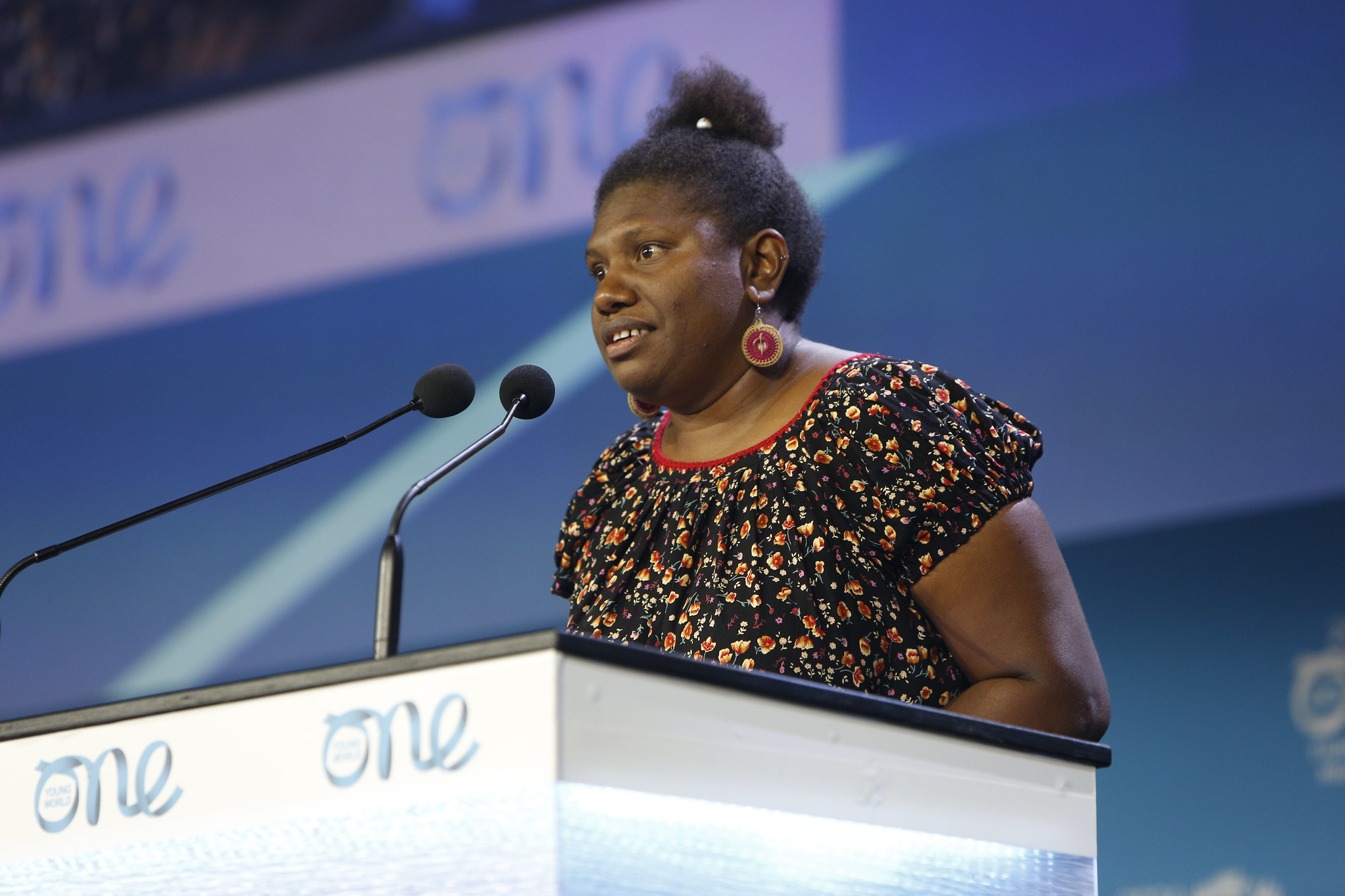
One of the key highlights for me was meeting content creators who taught me how to effectively use social media to raise awareness about our marine conservation work. In a world that is becoming increasingly digital, storytelling through social media is an essential tool for reaching a wider audience, gathering support, and driving action. I now have a clearer strategy for how to use platforms like Instagram and Facebook to boost our outreach and gain more visibility for the ENB Sea Keepers’ initiatives.
Another major achievement was connecting with potential partners and funders interested in supporting the construction of a marine education center in my home community. The education center will provide training and capacity-building workshops for locals, especially women and youth, equipping them with the skills to participate in marine conservation efforts. This facility will play a critical role in ensuring sustainable development and environmental protection in East New Britain. I am optimistic about securing the necessary resources to bring this vision to life. The OYW Summit provided me with a global platform to amplify the voices of my community and raise awareness about the unique challenges we face in Papua New Guinea. The discussions I had with fellow delegates and the connections I made will have a lasting impact not only on me but also on the work I do. I was able to bring attention to the issues of climate change, environmental degradation, and the exploitation of natural resources in my province. While these challenges are daunting, the Summit reinforced my belief that collective action is possible and that young leaders like myself have a crucial role to play in driving positive change.
One of the immediate impacts of my participation was the validation of my approach to marine conservation. By connecting with international experts, I realized that the solutions we are implementing at the community level, such as coral restoration and youth engagement, are aligned with global best practices. This gives me confidence that we are on the right path, and with the support I gained from the Summit, I am better equipped to scale up our efforts.
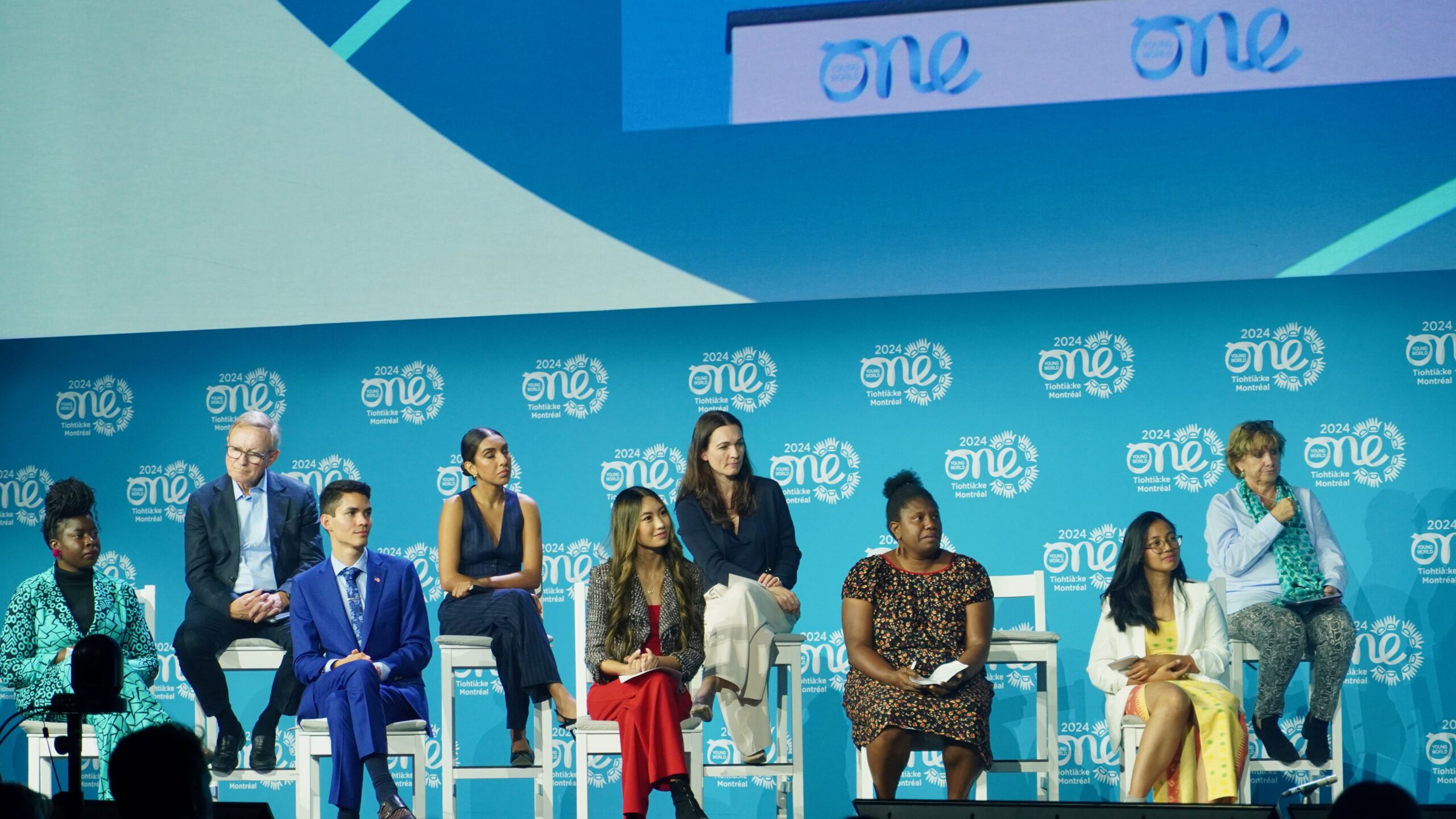
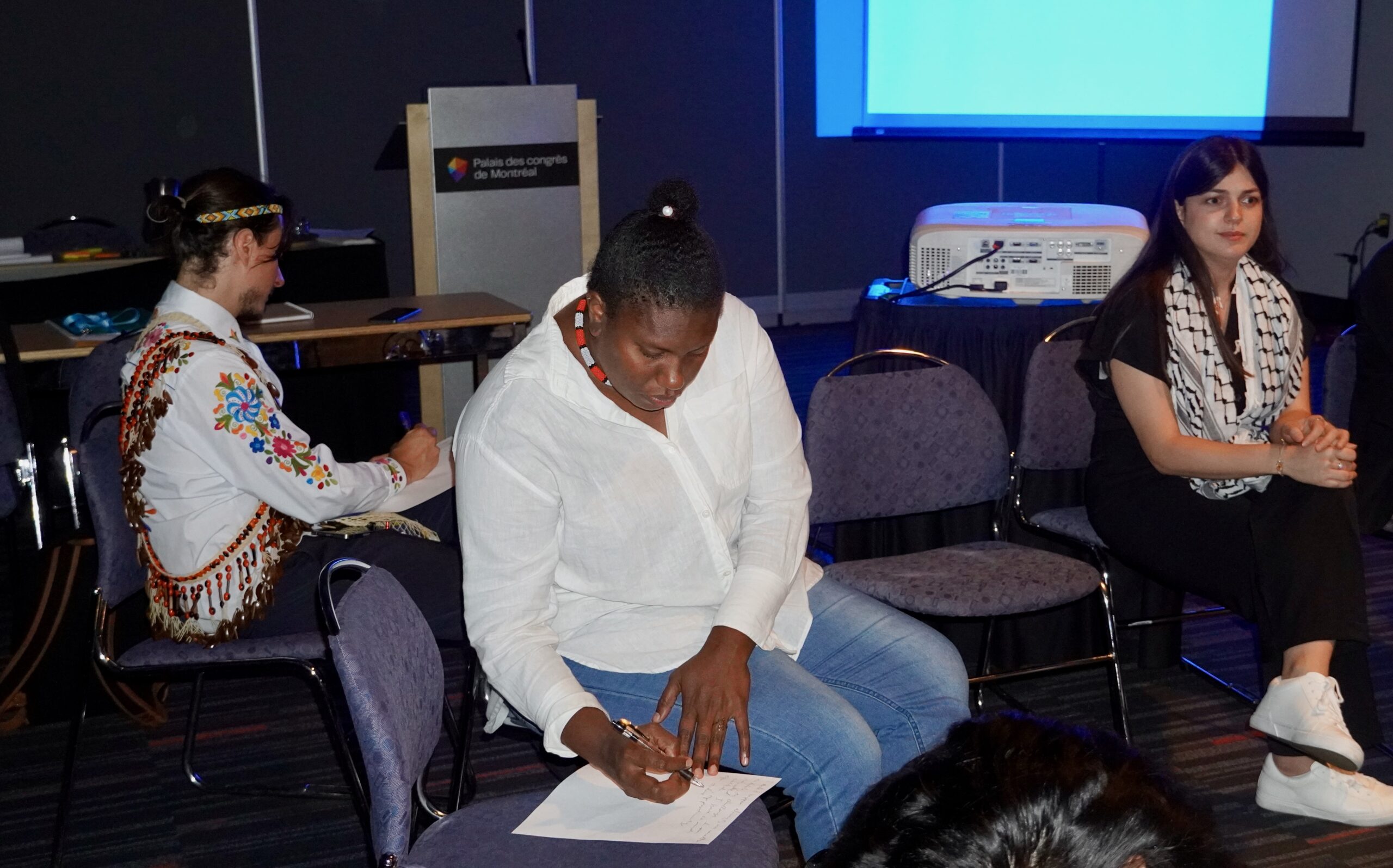
The lessons I learned at One Young World will shape my work for years to come. First and foremost, I learned the value of interdisciplinary collaboration. Solutions to complex issues like climate change, environmental protection, and community development require input from diverse sectors, including technology, policy, and grassroots activism. I plan to apply this lesson by fostering partnerships between different stakeholders in my community, ranging from local government officials to international tech experts.
I also learned the importance of empowering youth and women as agents of change. The sessions on gender equality were particularly impactful, and I left the Summit with a deeper commitment to ensuring that women and girls in my community have the knowledge and resources they need to participate fully in conservation efforts. We recently hosted a session on menstruation education, and the lessons from the Summit will help me improve and expand programs like these that address both environmental and social issues. In terms of practical application, the AI solutions I explored during the Summit will soon be piloted in our coral restoration work. We aim to develop an offline app that youth can use to monitor coral nurseries, collect data, and contribute to conservation efforts, even in remote areas with limited connectivity. Additionally, I plan to use the insights I gained on a social media strategy to enhance our outreach efforts, build a stronger support network, and attract potential donors.
Lastly, I learned that small, consistent actions can lead to significant change. Change doesn’t happen overnight, but through perseverance and collaboration, we can make a lasting impact. My participation in the One Young World Summit reaffirmed my commitment to this belief, and I am excited to continue the work I have started in my beautiful province of East New Britain.
